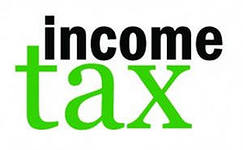- Преподавателю
- Иностранные языки
- Методическое пособие по дисциплине Английский язык для студентов 2 курса заочного отделения, специальностьНалоги и налогообложение
Методическое пособие по дисциплине Английский язык для студентов 2 курса заочного отделения, специальностьНалоги и налогообложение
| Раздел | Иностранные языки |
| Класс | - |
| Тип | Другие методич. материалы |
| Автор | Шишкевич С.А. |
| Дата | 28.10.2015 |
| Формат | docx |
| Изображения | Есть |
Кафедра "Иностранные языки-3", автор-составитель Шишкевич С.А.
Контент по дисциплине "Иностранный язык" - английский язык - для студентов II курса заочной формы обучения по специальности
"Налоги и налогообложение".
Основной целью обучения студентов английскому языку в неязыковом вузе
является овладение ими навыками практического владения этим языком, что предполагает формирование умения самостоятельно читать и понимать литературу по специальности с целью извлечения информации из иноязычных источников.
В условиях заочного обучения такие виды речевой деятельности, как устная речь (говорение и аудирование) и письмо используются на протяжении всего курса как средство обучения.
Перевод (устный и письменный) на протяжении всего курса обучения используется:
а) как средство обучения; б) для контроля понимания прочитанного; в) в качестве возможного способа передачи полученной при чтении информации.
Поскольку лица, обучающиеся на заочном отделении вуза, имеют иногда значительный
перерыв в изучении иностранного языка, и уровень их подготовки по данной дисциплине очень различается, данный контент включает грамматический и лексический материал, необходимый для овладения умениями и навыками чтения и понимания литературы по данной специальности («Налоги и налогообложение») соответственно программе вуза.

Module I
Задание 1.
Прочитайте, переведите текст и ответьте на вопросы.

Text
Income Taxes
Taxes on income from earnings are the most obvious and immediate taxes which most individuals pay. In most countries, the tax is progressive. The larger one's earnings, the higher the rate of tax levied. A government usually fixes allowances, which can be set against income before tax is payable. Tax is then 29 levied at higher rates as income rises up to a final top rate. There may be many bands, rising increasingly from just a few per cent to rates up to 70% or 80% for the highest earners in some countries. For one year in the U.K. in the 1970s an additional tax levy taxed the highest earners at more than 100%. This meant that the tax-payer, as well as losing the whole of his or her income after a particular point, also paid, in effect, a levy on wealth. The tax at which the highest rate is paid by the individual is known as the '; line-height: 100%"> In recent years governments have tried to simplify income taxes and take the lowest earners out of the tax equation altogether. There has also been a trend away from direct taxes on income to indirect taxes, which are generally, though not entirely, optional. All indirect taxes on a particular good or service are levied at one rate, and are never progressive. Some items, which are regarded as necessities, are free of indirect taxes in some countries.
Taxable income is not calculated in the same way in every country. A wide range of income may or may not be subject to tax. There is a basic qualitative difference in what income is liable to tax. Some countries have a global approach to taxation. This means that an individual resident in a particular country pays tax in that country on his or her income, wherever in the world it arises. For instance, an actor, writer or even a businessman may have income in any one tax year from a number of countries. Where he is resident in a country with global taxation he must declare all his income to the tax authorities, who will then tax him on the total. The USA, the UK and most advanced industrialized countries have global systems of taxation.
Other countries (Singapore and Malaysia are examples) have a territorial system of tax. This means that income is only taxed in the country when it is transferred there. For instance, if an individual has savings offshore, or dividends from investments, and leaves that income offshore, it is not liable for tax.
Income tax may simply be paid to the central government. A pay-as-you-earn system (PAYE), first originated in the UK, is 30 being used by an increasing number of countries. Its chief advantage is efficiency: as tax is deducted before salary or wages are paid, avoiding payment is difficult. Furthermore, employers effectively become unpaid tax collectors.
PAYE can operate only when the tax payer is employed by someone else. The self-employed must pay directly. Some governments collect a basic amount through PAYE, with a much larger proportion paid annually after the end of the tax year when the individual's tax form is submitted. Many governments offer some form of PAYE to the self-employed, or at least impose it on lower-paid workers who might have difficulty in finding a lump sum once a year.
Income tax is not always levied simply at a national level. The USA has state and federal income taxes. Local income taxes are favored in some countries. Local and national services have to be funded. The money may be paid for these by central government from the total tax it raises, or by a local tax on property values, or sales, or through a flat-rate head tax, as in the community charge. Income tax has the advantage over this: it is most directly related to ability to pay, but it is not popular with the public. It is difficult, it must be admitted, to devise any tax which is popular, but a flat-rate head tax, levied on earners and non-earners alike, is perhaps the least popular. A flat-rate head tax, in contrast to progressive income tax, is regressive, most affecting those least able to pay.
Notes:
earnings - заработки
obvious - очевидный
rate - ставка налога
to levy - взимать налог, облагать налогом, налог
allowance - пособие, льгота
band - диапазон
percentage - доля в процентах
additional - дополнительный
gross -без вычета расходов, гросс
entirely - полностью
goods - товары
to regard - считать, рассматривать
necessities - товары первой необходимости
liable (to) - подлежащий (налогообложению)
to approach - подходить; трактовка, подход
total - общий
PAYE - выплата подоходного налога при получении зарплаты
to originate - происходить
efficiency - эффективность
salary - жалованье, зарплата служащего
to avoid - избегать
to employ - нанимать на работу
annually - ежегодно
to submit - предоставлять, подавать
Questions:
1. What did you learn about income tax in the first lines of the text?
2. What usually happens before tax is payable?
3. How is tax levied as income rises up?
4. What is a ; line-height: 100%">5. How have governments tried to simplify income taxes?
6. What is a modern trend in taxation?
7. What is the basic qualitative difference in what income is liable to tax?
8. What is a global approach to taxation?
9. What is a territorial system of tax?
10. What are the advantages of PAYE?
11. When can't the PAYE system operate?
12. What advantage has income tax over local tax on property, sales or a flat-rate head tax?
Задание 2.
a) Прочитайте и переведите на русский язык словосочетания.
Income from earnings; the rate of tax levied; to set allowances against income; a final top rate; a levy on wealth;line-height: 100%">
b) Переведите сочетания слов на русский язык, обращая внимание на способ образования степеней сравнения.
A more complex tax regime; the most complex taxation; a bigger amount of money; the heaviest level of taxation; the most important tax; the least desirable social priorities; the less popular taxes; the highest standard of living; a lower tax rate; a heavier tax burden; the highest rate of income; the lowest earners; the least popular means; a much larger proportion.
Задание 3.
Переведите предложения и выберите правильный вариант, обращая внимание на способы образования степеней сравнения.
1. I've got some money. I've got … than you have, but still not enough.
a) more b) less c) least
2. The old tax regime was bad, but the new one is … .
a) best b) worst c) worse
3. This communal project is good, but that one is … .
a) most b) better c) worse
4. Have you got much money? No, I have … than you have.
a) much b) less c) more
5. Have you got few individuals and companies subject to tax? No, we have … than you have.
a) more b) many c) less
6. Have you got any taxes on spending? Yes, we've got some. We've got … than you have.
a) many b) less c) fewer
7. Our tax regime is complex, but your tax regime is the … complex.
a) more b) most c) less
8. The first principle is general, the second one is … general, but the third principle is the … general of them all.
a) less, little b) least, less c) less, least
9. Ireland has a high standard of living, the U.K. has … standard of living, but Sweden has one of the … standards of living in the world.
a) higher, highest b) more high, most high c) highest, higher
10. Direct taxes on incomes are reasonable, indirect spending taxes on individuals are … reasonable, but company taxes are the … reasonable of all of them.
a) more, less b) more, most c) most, least
11. Income tax is not very popular, excise duties are … popular, but inheritance taxes are the … popular.
a) less, least b) little, least c) much, more
 Прочитайте и переведите предложения на русский язык.
Прочитайте и переведите предложения на русский язык.
Выберите один правильный ответ. При выборе ответа следует ориентироваться на контекст текста модуля (задание.1).
В предложениях 1-17 выберите вариант перевода подчеркнутой фразы.
Final Test
1. Tax on income from earnings is the most obvious and immediate of all taxes.
a) самый очевидный b) более очевидный c) наименее очевидный
2. His earnings are larger than mine.
a) наибольшие b) самые большие c) больше чем
3. The allowances set against income are not so big as we expected.
a) такие же большие как b) не такие большие как c) больше чем
4. In some countries the highest earners are taxed as much as the lowest earners.
a) так же много как самые высокооплачиваемые b) так же много как самые низкооплачиваемые c) больше чем самые низкооплачиваемые
5. Direct taxes are higher in the UK than in the USA.
a) наименее высокие b) наиболее высокие c) выше
6. Indirect taxes in France are the highest of all the countries in question.
a) самые высокие b) выше c) самые тяжелые
7. These allowances are as important as those.
a) не такие важные как b) такие же важные как c) важнее чем
8. The final top rate is the highest of the three.
a) выше чем b) самая низкая c) самая высокая
9. That earner is better paid than this one.
a) лучше оплачиваемый чем b) так же оплачиваемый как c) лучше работает чем
10. Taxable income is as easy to calculate as gross income.
a) так же легко рассчитывать как b) не так легко вычислять как c) так же легко взимать как
11. The USA's industry is as advanced as the UK's.
a) такая же нуждающаяся как b) такая же развитая как c) более развитая чем
12. Income in this country is not so easy to transfer as in that one.
a) легче перевести чем b) не так легко перевести как c) не так сложно перевести как
13. This is the best of the three investments.
a) лучше b) хорошая c) самая хорошая
14. The income from those savings is more liable to tax than any other income.
a) менее налогооблагаемый чем b) подлежит налогу в наибольшей степени чем
c) так же облагается налогом как
15. The PAYE scheme is more popular now than it was some years ago.
a) более популярна сейчас чем b) наиболее популярная c) самая популярная сейчас
16. The tax deducted from the salary this month is the biggest of all.
a) самый большой b) самый широкий c) больше чем
17. A PAYE system is as easy as it looks.
a) такая сложная как b) проще чем c) такая простая как
18. In recent years income taxes have become … than 10 years ago.
a) simple b) simpler c) simplest
19. He is … earner in the office.
a) as low as b) lower c) the lowest
20. Indirect taxes are … than direct taxes.
a) many optional b) the most optional c) more optional
21. In Sweden direct taxes are … of all European countries.
a) the highest b) higher c) high
22. These goods and services are … than those.
a) more cheap b) cheaper c) as cheaper
23. Your earnings abroad are as … to tax as in the home country.
a) more liable b) the most liable c) liable
24. The global approach to taxation is … in advanced countries than in other countries.
a) more popular b) popular c) as popular
25. The PAYE scheme is … of the three.
a) the goodest b) the most good c) the best
26. The PAYE system is much … when the tax-payer is employed by someone else.
a) many efficient b) more efficient c) efficient
27. In some countries local income taxes are … than federal ones.
a) favoured b) more favoured c) the most favoured
28. The flat-rate head tax is the … popular in the UK.
a) least b) less c) little
29. The local tax on property values is as … as a flat-rate head tax.
a) worst b) more bad c) bad
30. Our tax regime is … than the previous one, but their tax regime is … we have ever had.
a) bad, the baddest b) worse, the worst c) badder, the baddest

Module II
Задание 1.
Прочитайте, переведите текст и ответьте на вопросы.


Text
National Insurance Contributions (NIC)
In addition to income tax, citizens generally pay an additional contribution - which may be the same for everyone, but is more likely to be one related to their income - with a further contribution from the employer. When first begun these payments were for specific purposes; for example, to pay for basic health care, for allowances from the state in times of need, and as a contribution towards an eventual pension. In other words, it was effectively compulsory social insurance levied by governments against possible future deprivation. Today, such contributions rarely cover the amounts paid out. A national insurance contribution or a social security payment is simply an additional tax. However, by no means all countries have social security systems. The idea was pioneered by the UK and the Scandinavian countries, but has now spread to most industrialized nations (especially in Europe). Though there has been some cutting back in the past decade, there is nevertheless broad agreement that the system is valuable and that it provides an important safety net for those in need or in retirement.
A number of the world's poorest countries are unable to operate effective social security systems, generally because they do not have enough people in paid employment to generate
the necessary funds. Some of the newly emerging industrialized countries have taken a different approach, however.
 In Singapore and Malaysia, for example, all workers and employers put substantial proportions of their wages into a special fund. This then accumulates. Individuals may then withdraw money for specific purposes such as housing. On retirement, the money reverts to the individual for his own use. There is no pension as such. Investment in, and the release of funds from, the Consolidated Provident Fund (as it is called in Singapore) have enabled Singapore to achieve one of the highest rates of home-ownership in the world (over 80%). It should be recognized, however, that this is not a tax as such: indeed, the contributor receives tax-free interest of his accumulated funds. Rather, it is a form of compulsory saving for wage earners. No government pension is paid.
In Singapore and Malaysia, for example, all workers and employers put substantial proportions of their wages into a special fund. This then accumulates. Individuals may then withdraw money for specific purposes such as housing. On retirement, the money reverts to the individual for his own use. There is no pension as such. Investment in, and the release of funds from, the Consolidated Provident Fund (as it is called in Singapore) have enabled Singapore to achieve one of the highest rates of home-ownership in the world (over 80%). It should be recognized, however, that this is not a tax as such: indeed, the contributor receives tax-free interest of his accumulated funds. Rather, it is a form of compulsory saving for wage earners. No government pension is paid.
Notes:
related - связанный с
purpose - цель, намерение
health care - здравоохранение
compulsory - принудительный
deprivation - трудности, лишения
to cover - покрывать
to spread - распространять(ся)
cutting back - откат назад, сокращение
nevertheless - тем не менее, однако
valuable - ценный
safety - безопасность
retirement - отставка
to generate - вырабатывать
fund - фонд
to emerge - появляться, возникать
industrialized - промышленно развитый
to develop - развиваться
substantial - значительный
to accumulate - накапливать
to withdraw - снимать (деньги со счета)
to revert - возвращать
release -освобождение, выпуск
to enable - позволять, делать возможным
to achieve - достигать
Questions:
1. Is NIC related to people's income?
2. Who pays further contribution for the workers in paid employment?
3. What were these payments for at first?
4. How can you characterize the additional contribution the citizens pay now?
5. How did these payments begin?
6. What do most countries think about this system?
7. What countries cannot operate effective social security systems? Why not?
8. What approach has been taken by the newly emerging industrialized countries?
9. Why has Singapore achieved one of the highest rates of home-ownership in the world?
10. Why is this tax not a tax as such in Singapore?
Задание 2.
a) Прочитайте и переведите на русский язык словосочетания.
Additional contribution; related to income; specific purposes; basic health care; effectively compulsory insurance; possible future deprivation; social security payment; industrialized nations; to operate effective social security systems; people in paid employment; the newly emerging industrialized countries; substantial proportions; pension as such; the release of funds; the highest rate of home-ownership.
b) Переведите слова на русский язык. Напишите исходные глаголы.
Taxing, finding, buying, drawing, avoiding, cutting, housing, withholding, spending, splitting, reducing; disposal, withdrawal, denial, renewal, approval, removal.
Задание 3.
Переведите предложения и выберите правильный вариант, обращая внимание на способ образования, форму и функцию инфинитива.
1. There is a tendency … from direct taxes on income to indirect ones on spending.
a) to move b) moving c) move
2. The aim is … the additional value which every stage of manufacture puts on a particular product.
a) taxation b) tax c) to tax
3. Self-employed individuals and companies … for VAT in time.
a) must have register b) must have registered c) must registered
4. Companies are allowed … the VAT payments.
a) to offset b) offset c) to be offset
5. Sales taxes tend … on virtually all goods.
a) to levied b) to levy c) to be levied
6. Governments are free … their own rates.
a) set b) to set c) setting
7. More and more countries seem … VAT as a ready source of income.
a) to regarded b) have regarded c) to have regarded
8. It is up to the individual … income.
a) declare b) to declare c) declaring
9. It is not possible … a general rule about withholding tax, and it is wise for the investor … at the outset.
a) give, check b) to have given, to check c) to give, to check
10. Savings in government schemes are designed … people … their money to the government.
a) to encourage, to lend b) encourage, lend c) to encourage, lending
11. The government may have been able … its citizens … money.
a) to have persuade, to have save b) to persuade, to save c) to persuaded, to saved
12. At first, these payments were for specific purposes, for example … for basic health care.
a) paying b) to pay c) pay
 Прочитайте и переведите предложения на русский язык. Выберите один правильный ответ. При выборе ответа следует ориентироваться на контекст текста модуля (задание 1).
Прочитайте и переведите предложения на русский язык. Выберите один правильный ответ. При выборе ответа следует ориентироваться на контекст текста модуля (задание 1).
Final Test
1. .... individuals pay … additional tax which may be … same for everyone.
a) -, an, the b) the, the, the c) -, an, a
2. There may be … further payment from … employer.
a) the, an b) -, an c) a, the
3. What is called … national insurance contribution is simply … additional tax.
a) a, the b) -, the c) a, an
4. … idea was generated by … UK and spread to … most industrialized countries.
a) -, the, - b) the, the, - c) the, a, the
5. … number of the world's poorest countries cannot afford … social security systems.
a) a, - b) the, the c) the, -
6. Some of … newly emerging industrialized countries have taken … different approach.
a) -, a b) the, a c) a, a
7. On … retirement … money is given back to … individual for his/her own use.
a) the, -, the b) -, the, the c) the, the, an
8. Malaysia has one of … highest rates of housing construction in …world.
a) -, the b) a, a c) the, the
9. NIC is not … tax as such.
a) a b) the c) -
10. It is … kind of compulsory saving for … wage earners.
a) the, the b) a, - c) -, -
11. NIC is related to the … of taxpayers.
a) income b) security c) saving
12. The employer pays a … contribution.
a) insurance b) safety net c) further
13. These payments were for … from the state in times of need.
a) income b) insurance c) allowances
14. The tax is a compulsory … against possible future deprivation.
a) tax-free b) insurance c) saving
15. Not all countries can afford social … systems.
a) security b) insurance c) retirement
16. The system provides an important … for people in need or in retirement.
a) wages b) safety net c) income
17. Citizens in Singapore put part of their … into a special fund.
a) saving b)income c) wages
18. …, people get the money back for their own use.
a) on retirement b) further c) allowances
19. The contributor gets … interest on his accumulated funds.
a) saving b) tax-free c) safety net
20. It is a form of compulsory … for wage earners.
a) security b)wages c) saving
21. In addition … income tax, citizens pay other taxes.
a) for b) to c) with
22. NIC is likely to be related … their income.
a) about b) on c) to
23. Allowances … the state are paid … times … need.
a) from, in, of b) to, on, of c) in, in, for
24. Compulsory insurance is levied … government … possible future deprivation.
a) by, against b) on, from c) to, in
25. The idea spread … most industrialized countries.
a) in b) to c) through
26. Social security payment provides a safety net … those … need or … retirement.
a) to, on, in b) from, to, about c) for, in, on
27. A scheme exists, and all workers and employers put money … a special fund.
a) on b) into c) in
28. … retirement, the money reverts … the individual … his/her own use.
a) in, from, with b) on, from, about c) on, to, for
29. Investment … and release … the funds have enabled people to build houses … their own.
a) in, of, of b) on, of, in c) from, in, for
30. The contributor receives tax-free interest … the accumulated funds.
a) on b) of c) from

Module III
Задание 1.
Прочитайте, переведите текст и ответьте на вопросы.
 Text
Text
Tax on Savings and Investment
Not all income comes from employment. There are many other forms of income, from savings and investments, rent, etc. This does not, in principle, escape tax, though there are exceptions. It is up to the individual to declare income such as rent, interest and dividends to the tax authorities. Interest on savings may be paid gross before tax or net after it. A dividend on an investment may also be paid gross or net. Where these payments are paid net of tax the rate usually charged is the same as that on companies, and it is up to the individual to reclaim the tax if his or her own individual rate of tax is lower than the company rate. If the individual's ; line-height: 100%"> There is an international aspect to taxes on dividends. Some countries impose what is called a "withholding tax" on dividends paid by foreign investors before they can be repatriated. The rate of tax varies, and can be as high as 20% or 30%, but it may also be nominal. It is not possible to give a general rule about withholding tax, and it is wise for the investor to check at the outset. Withholding taxes may be reduced by special tax treaties between countries. These are known as Double Tax Relief (DTR) agreements. Those which have no withholding tax may pay dividends net and not allow the foreign investor to reclaim the deducted tax. Where a withholding tax is paid it can be balanced out with taxes paid in the foreigner's resident country, if there is a DTR agreement.
Interest on some savings is tax-free. These are generally savings in government schemes, which are designed to encourage people to lend their money to the government. Schemes may be for a fixed term, with penalties for early withdrawal. The more a government may be able to persuade its citizens to save in this way, the greater flexibility it may have to change the rates for both direct and indirect taxes. Interest on savings in the private sector is normally (though not invariably) liable for tax, as additional income at the ; line-height: 100%"> Income which is not earned may be simply added to earnings and taxed accordingly. Alternatively, it may be subject to additional higher taxation and may be called an investment tax.
Notes:
to rent - аренда, арендовать
to escape - избегать
exception - исключение
net - за вычетом расходов
to charge - взимать
to reclaim - требовать вернуть
to arrive - достигать
withholding - удержание
to repatriate - возвращать на родину
to check - проверять
outset - начало
treaty - договор
Double Tax Relief (DTR) - освобождение от двойного налогообложения
to balance out - выверять
to design - вырабатывать
to lend - давать в займы
term - срок
penalty - наказание
to persuade - убеждать
flexibility - гибкость
Questions:
1. What forms of income can there be?
2. Do they escape tax?
3. How can interest on savings and a dividend on an investment be paid?
4. What rate is usually charged when a dividend on an investment is paid net of tax?
5. When can an individual reclaim the tax?
6. What is a withholding tax?
7. What is the rate of a withholding tax as a rule?
8. What should an investor check at the outset?
9. How can withholding taxes be reduced?
10. Interest on what savings is usually free? Why?
11. How are government schemes designed?
12. What happens in case of early withdrawal?
13. On what does the government's flexibility to change the rates for taxes depend?
14. What happens to unearned income?
Задание 2.
a) Прочитайте и переведите на русский язык словосочетания.
Income from employment; income from savings; individual rate of tax;line-height: 100%">
b) Переведите сочетания существительных на русский язык, обращая внимание на опорное существительное.
Resident country; tax authorities; company rate; individual rate; stock market; tax treaties; market economy; government securities; government schemes; investment tax; community charge; lump sum; flat-rate head tax; tax burden.
Задание 3.
Переведите предложения и выберите правильный вариант, обращая внимание на способ образования оборота «Объектный падеж с инфинитивом».
1. The government … an additional contribution.
a) expects the citizens to pay b) expect the citizens pay c) expects pay the citizens
2. People want the tax to be related to their income.
a) want relate the tax b) want the tax to relate c) want the tax to be related
3. In times of need tax-payers … .
a) wish allowances to be given b) wish give allowances c) wish allowances be given
4. The government … their money to the state.
a) would like the public lend b) would like the public to lend c) would like to lend the public
5. We … effectively compulsory insurance levied by governments against possible future deprivation.
a) consider NIC be b) consider NIC is c) consider NIC to be
6. I … for those in need or in retirement.
a) know the system to be valuable b) know the system is valuable c) know the system valuable
7. A number of the world's poorest countries found this social security system … .
a) operates impossible b) impossible to operate c) impossible for operate
8. We … the necessary funds for NIC.
a) suppose the people in paid employment generate b) suppose the people in paid employment generating c) suppose the people in paid employment to generate
9. They … by newly emerging industrialized countries.
a) think the new approach to be taken b) think the new approach will be taken c) think the new approach be taken
10. The contributors … in their decision.
a) considered themselves right b) considered themselves to be right c) considered themselves are right
11. The individuals … for their own use.
a) hope their money to be reverted b) hope their money reverted c) hope their money to revert
12. The tax authorities … on time.
a) ordered the taxes is collected b) ordered to collect the taxes c) ordered the taxes to be collected
13. The individuals … their money.
a) count on the Fund to be accumulated b) count on the Fund to accumulate c) count on the Fund accumulates
 Прочитайте и переведите предложения на русский язык. Выберите один правильный ответ. При выборе ответа следует ориентироваться на контекст текста модуля (задание 1).
Прочитайте и переведите предложения на русский язык. Выберите один правильный ответ. При выборе ответа следует ориентироваться на контекст текста модуля (задание 1).
Final Test
1. To escape is … .
a) бежать (из тюрьмы) b) спастись c) избавиться
2. Term is … .
a) срок b) условие c) семестр
3. To declare is … .
a) признавать b) провозглашать c) предъявлять
4. To charge is … .
a) заряжать b) взимать c) обвинять
5. To arrive is … .
a) прибывать b) достигать c) наступать (о времени)
6. Scheme is … .
a) программа b) интрига c) устройство;
7. Income comes … employment, savings, rent, etc.
a) for b) from c) with
8. An individual must declare … his/her income … tax authorities.
a) to, to b) -, for c) -, to
3. Interest … savings and a dividend … an investment may be paid gross or net.
a) from, in b) on, on c) with,
4. It is … … the individual to declare income and reclaim the tax.
a) up to b) about to c) with to
5. Some countries impose special taxes … dividends … foreign investors.
a) on, from b) from, by c) with, for
6. It is wise … the tax-payer to check the taxes imposed … him/her.
a) on, from b) over, in c) for, on
7. Taxes paid in the foreigner's resident country are balanced … … the withholding tax.
a) in about b) out with c) on for
8. Savings … government schemes encourage people to lend money … the government.
a) in, to b) on, for c) from, by
9. If an individual withdraws money … a term, he/she pays penalties … the early withdrawal.
a) in, for b) on, of c) for, for
10. The government can change the rates … direct and indirect taxes.
a) on b) about c) for
11. Interest … savings in the private is liable … tax and is taxed … the ; line-height: 100%">a) on, for, by b) on, to, at c) from, on, from
12. Сила воздействия is … .
a) ability b) the strength of the effects c) the particular level of the tax
13. Определять is … .
a) to accumulate b) to save c) to determine
14. Способность is … .
a) ability b) a fall c) incentive
15. Определенный уровень налога is … .
a) high level of taxation b) taxation of profits c) the particular level of the tax
16. Накапливать is … .
a) to accumulate b) to escape b) to determine
17. The individual must … income such as rent, interest and dividends.
a) declaration b) declare c) declarative
18. Individuals … their declarations at the end of the financial year.
a) submit b) submitting c) submission
19. The government tries to … its citizens to save money in this way.
a) persuaded b) persuasion c) persuade
20. Citizens are punished if they … their money early.
a) withdrawal b) withdraw c) withdrawing
21. Special treaties between countries … the international aspect to taxes on dividends.
a) improve b) improvement c) improvable
22. Governments … money through government saving schemes.
a) receiving b) receiver c) receive
23. Sometimes the individual can … the difference in tax from the tax authorities.
a) reclaim b) reclamation c) reclaimed
24. If the individual's dividend … with corporation tax higher than his/her ; line-height: 100%">a) arrive b) arrival c) arriving
25. The way in which the unearned income is taxed … very much.
a) variety b) variable c) vary
26. Income may come from … and … .
a) invest, save b) investment, savings c) investor, saving
27. These … are made net of tax.
a) pays b) payments c) paying
28. The individual will be able to reclaim … the from the tax authorities.
a) difference b) differ c) different
29. If there is a DTR …, a withholding tax is balanced out with taxes paid in the foreigner's country.
a) agreeable, reside b) agree, residence c) agreement, resident
30. Interest on savings in … schemes is tax-free.
a) govern b) government c) governor

Module IV
Задание 1.
Прочитайте, переведите текст и ответьте на вопросы.
Text
Indirect Taxes - Sales and VAT
 In recent years there has been a tendency in many countries to move from direct taxes on income to indirect ones on spending. These may be simple sales taxes, by which a percentage
In recent years there has been a tendency in many countries to move from direct taxes on income to indirect ones on spending. These may be simple sales taxes, by which a percentage
is added to the final price in the shops, with the revenue raised used by local or central government. Alternatively, they may be Value Added Taxes (VAT), which are now compulsory in all EU countries. VAT is normally administered by Customs and Excise authorities.
VAT, being levied at every stage of manufacture and service, is a rather different concept from sales tax. In other words, a tax is imposed as the value of the product increases at each stage of manufacture. The aim is to tax the additional value which every stage of manufacture puts on a particular product. Self-employed individuals (above a certain level of income) and companies must pay VAT. Another difference between sales taxes and VAT is that the former tend to be levied on virtually all goods, while some items may be exe7npt from VAT or zero-rated. There is a difference, too, in concept between what is zero-rated and what is exempt. In theory, anything zero-rated could be charged at any time, and anyone selling a zero-rated article can claim a refund for any VAT paid to other people. Where goods are exempt, no reclaims can be paid. The type of product or service is quite different. For example, in the UK food, books, children's clothing is all zero-rated; postal services, insurance, burial and cremation charges are exempt from VAT.
In the UK, the current rate of VAT is normally 17.5% (8% for fuel bills), but sales taxes are not usually levied at such high levels. A sales tax may be fixed by central government or by local or state authorities.
Both sales tax and VAT may be at a uniform rate regardless of products they are charged on. They can, however, be at different rates (say, higher on what are seen as luxuries and lower,
or not applicable at all, on essential items). There is no uniform rate of VAT throughout the EU: governments are free to set their own rates. From relatively low rates when first introduced, VAT rates have increased progressively as more and more countries have come to regard VAT as a ready source of income to compensate for lower taxes on income. Needless to say, any benefit from lower income taxes enjoyed by the payers is often lost through higher rates of VAT. But few voters are aware of paying VAT and everyone is conscious of the income tax they pay.
Some countries (tax havens) have no direct taxes on income and few indirect taxes. They may, however, impose visitors' taxes to be paid at airports on departure or on hotel accommodation. More common, however, are no indirect taxes, except for excise duties, imposed for social and revenue-raising purposes.
Notes:
alternatively - попеременно
to administer - управлять
manufacture - производство
concept - концепция, идея
value - стоимость
former - прежний
virtually - фактически
exempt - свободный от налога
zero-rated - с нулевой ставкой
to claim - требовать
refund - возврат денег
to fix - устанавливать
uniform - единый
regardless - несмотря на
luxuries - предметы роскоши
applicable - применимый
to be aware - осознавать
departure - отъезд
excise - акциз
Questions:
1. What indirect taxes on spending are imposed now instead of direct taxes on income?
2. What is a sales tax?
3. On what level is the sales tax revenue used?
4. What fiscal organ administers VAT?
5. What is VAT and what is its aim?
6. What is the difference between sales tax and VAT?
7. What is the difference between zero-rated goods and exempt goods?
8. What type of product or service can be zero-rated or exempt of VAT?
9. What rates can sales tax and VAT have?
10. Who fixes a sales tax?
11. Why do governments regard VAT as a ready source of income?
12. Why do voters and governments prefer higher rates of VAT and lower income taxes?
13. What kind of indirect taxes do tax havens impose?
Задание 2.
a) Прочитайте и переведите на русский язык словосочетания.
Direct taxes on income; indirect taxes on spending; final price; at every stage of manufacture and service; self-employed individuals; virtually all goods; zero-rated items; to claim a refund; burial and cremation charges; to set rates; a ready source of income; political benefit; revenue-raising purposes.
Задание 3.
Переведите предложения и выберите правильный вариант, обращая внимание на способ образования оборота «Именительный падеж с инфинитивом».
1. The tax burden on the individual … in the past decade.
a) appears to have fallen b) appears have fallen c) appears to have fall
2. Income tax … related to people's income.
a) likely to be b) is likely to be c) is likely be
3. Taxable income … in the same way in every country.
a) is not expect to be calculated b) is not expected to calculate c) is not expected to be calculated
4. Income … in the country only when it is transferred there.
a) supposed to be taxed b) is supposed to be taxed c) is supposed be taxed
5. The territorial system of taxation … the individual with much more scope for financial planning than a global system.
a) seems to be left b) seems leave c) seems to leave
6. PAYE … very effective.
a) is considered to be b) consider to be c) is considered is
7. PAYE … in the UK.
a) said to have originated b) is said to originated c) is said to have originated
8. The tax-payer … by someone else for PAYE to operate.
a) is supposed to be employed b) is supposed to employ c) supposes to be employed
9. Lower-paid workers … difficulty in finding a lump sum once a year.
a) are heard to have find b) are heard to have found c) are heard have found
10. Local services are expected to be funded by central government from the total tax it raises.
a) are expected to be fund b) are expected to be funded c) are expected to fund
11. Every tax … system complicated.
a) is said is b) said to be c) is said to be
 Прочитайте и переведите предложения на русский язык. Выберите один правильный ответ. При выборе ответа следует ориентироваться на контекст текста модуля (задание 1). В предложениях 25-30 выберите ответ, содержащий подходящий синоним подчёркнутому выражению.
Прочитайте и переведите предложения на русский язык. Выберите один правильный ответ. При выборе ответа следует ориентироваться на контекст текста модуля (задание 1). В предложениях 25-30 выберите ответ, содержащий подходящий синоним подчёркнутому выражению.
Final Test
1. In tax havens they do not collect many taxes. They collect … taxes.
a) few b) little c) much
2. People do not buy luxuries when they have … money.
a) a few b) a little c) a lot of
3. When low-paid wage earners have … money they buy … essential items.
a) a few, a little b) a little, a few c) little, much
4. He understands … about taxes, but he wants to know more.
a) many b) a few c) much
5.1 have … allowances from the government; I pay a lot of taxes.
a) few b) little c) much
6. He earns … , that is why he pays big taxes.
a) a few b) a little c) a lot
7. Is there any income in the company? - Yes, but very … .
a) much b) little c) few
8. Give me … time to submit my individual tax form to the tax authorities.
a) a few b) a little c) many
9. I know … taxation rules, and now I can calculate my individual tax rate.
a) many b) a few c) a little
10. … voters are aware of paying VAT, but everyone is conscious of the income tax they pay.
a) few b) much c) little
11. Many countries have a tendency … move … direct taxes … income … indirect ones … spending.
a) to, from, on, to, on b) in, from, with, to, on c) on, in, on, to, from
12. VAT is levied … the additional value … the product … every stage … manufacture.
a) by, for, on, of b) on, of, at, of c) from, of, in, of
13. Sales tax is a different concept … VAT.
a) in b) of c) from
14. VAT is imposed … all goods.
a) on b) with c) for
15. Some items are exempt … VAT.
a) of b) from c) for
16. An individual can claim a refund … any VAT paid … other people.
a) of, with b) for, to c) from, to
17. Sales taxes are usually not charged … such a high level.
a) on b) in c) at
18. Any benefit … lower income taxes is lost … higher rates of VAT.
a) from, through b) with, from c) for, by
19. VAT is a ready source … income to compensate … lower taxes … income.
a) in, for, about b) in, on, in c) of, for, on
20. Most people are unaware … paying VAT and all people are conscious … the income tax they pay.
a) of, of b) about, on c) in, on
21. There are no indirect taxes, except … excise duties, imposed … social purposes.
a) of, on b) for, for c) on, from
22. Virtually is … .
a) виртуально b) в сущности c) фактически
23. To enjoy is … .
a) наслаждаться b) пользоваться (правами) c) обладать (здоровьем)
24. To fix is … .
a) устанавливать b) назначать (срок, цену) c) привлекать (внимание)
25. Governments tend to collect indirect taxes on spending instead of direct taxes on income.
a) have a tendency b) has legacy c) want to
26. VAT is now obligatory in all EU countries.
a) elementary b) necessary c) compulsory
27. VAT is a different notion from sales tax.
a) question b) concept c) matter
28. The goal is to tax additional value.
a) aim b) means c) point
29. The central or the local governments establish a sales tax.
a) set b) get c) fix
30. Many countries look on VAT as a compensation for lower taxes on income.
a) see b) regard c) take

 Прочитайте и переведите предложения на русский язык. Выберите один правильный ответ. При выборе ответа следует ориентироваться на контекст данного контента (английский язык для налоговой сферы).
Прочитайте и переведите предложения на русский язык. Выберите один правильный ответ. При выборе ответа следует ориентироваться на контекст данного контента (английский язык для налоговой сферы).
В предложениях 7,8,9 определите, какой частью речи является подчеркнутое слово. Для того чтобы выполнить предложения 26-35, внимательно прочитайте образец, данный перед этими предложениями.
Задания для промежуточного контроля
1. Самый высокий и сложный
a) the highest, the most complex b) the most high, more complex c) higher, more complex
2. Более низкий и желаемый
a) lower, most desirable b) more low, more desirable c) lower, more desirable
3. Такой же очевидный, как и эффективный
a) so obvious, as efficient b) as obvious, as efficient c) as obvious, so efficient
4. … is only taxed in the country when it is transferred there.
a) payment b) income c) lump sum
5. An individual may have … offshore, or dividends from … .
a) rate, income b) band, salary c) savings, investments
6. PAYE has been adopted by an … number of countries.
a) decreasing b) increasing c) saving
7. Governments tax individuals and companies on their income.
a) существительное b) прилагательное c) глагол
8. The government imposed an additional tax.
a) существительное b) прилагательное c) глагол
9. This tax regime was introduced 5 years ago.
a) существительное b) прилагательное c) глагол
10. Contribution is … .
a) содействие b) вклад (денежный, научный) c) сотрудничество (в газете)
11. Net is … .
a) сеть b) западня c) паутина
12. Rate is … .
a) скорость b) пропорция c) ставка
13. Withdraw is … .
a) отдергивать b) брать назад, снимать со счета c) уходить
14. Виды дохода
a) types of salary b) forms of income c) amount of money
15. Декларировать доход
a) to present a declaration form b) to calculate income c) to declare income
16. Проценты с накоплений
a) interest on savings b) percent in investment c) interests from contribution
17. Верхняя ставка налога
a) high level of taxation b) ;border-; border-; border-; border-;line-height: 100%"> 18. Устанавливать «удерживающий налог»
a) to set carrying tax b) to fix holding tax c) to impose a withholding tax
19. Особые налоговые соглашения
a) special tax treaties b) specific taxation c) particular tax agreement
20. Обычно взимается
a) normally charged b) usually changed c) commonly checked
21. Практически на все товары
a) in practically every things b) on virtually all goods c) on eventually whole points
22. Социальные нужды
a) public aims b) common good c) social purposes
23. Требовать возврата денег
a) reclaim money b) claim a refund c) proclaim funds
24. Стоимость товара
a) the value of the product b) the expenditure on goods c) the cost of purchase
25. Правительства свободны в определении
a) governments are free to determine b) rulers can be free c) society is free to set
Образец: Sales taxes are not paid at such a high level.
People do not usually like such taxes.
The level of sales taxes was so high. At first they paid so many taxes.
26. Taxation is …complex.
a) such b) such a \ an c) so
27. It is … important source of revenue.
a) such b) such a \ an c) so
28. The government has never gathered in from taxes … big money.
a) such b) such a \ an c) so
29. The state is … minimally involved in the lives of individuals.
a) such b) such a \ an c) so
30. It is … burden.
a) such b) such a \ an c) so
31. Sweden has … high standards of living.
a) such b) such a \ an c) so
32. Usually I have … little money.
a) such b) such a \ an c) so
33. She has … many sources of income.
a) such b) such a \ an c) so
34. They have … few taxes in tax havens.
a) such b) such a \ an c) so
35. You can't expect the individual to do … hard work finding a lump sum once a year.
a) such b) such a \ an c) so

Module V
Задание 1.
Прочитайте, переведите текст и ответьте на вопросы.
Text 1
Excise and Stamp Duties
Excise duties are another form of indirect tax, but they are additional to any form of sales tax or VAT where that is imposed. There tends to be a social element when governments are deciding what should be eligible for the duty, and they tend to cover imported materials rather than entirely home-produced items. They are levied on tobacco and alcohol (including home - as well as foreign-produced beers, wines and spirits) and petrol.
Where governments wish to discourage a certain type of spending or discourage imports generally they may introduce severe import duties on a wide range of non-essential items. Punitive tax rates on imported cars and petrol are common in developing countries, for example, the aim being to discourage private motoring.
Stamp duties are small taxes levied on a variety of legal contracts such as those on share and house purchases. They are rarely major revenue raisers and are becoming less popular in the developed industrial nations.
Notes:

stamp - печать, штемпель
eligible - подлежащий налогу
home-produced - отечественного производства
foreign-produced - импортного производства
spirits - алкоголь
punitive - карательный
motoring - автомобилизм
share - акция
purchase - покупка
residence - место постоянного проживания
mortgage - закладная на дом; заклад, ипотека
indication - указание
yardstick - мерка
crude - грубый, приблизительный
affluence - состояние, богатство
Questions:
1. What is another form of indirect tax besides sales tax and VAT?
2. On what are excise duties usually levied?
3. How can governments encourage and discourage a certain kind of spending?
4. What are stamp duties?
5. On what are stamp duties levied?
6. Are stamp duties popular in the developed industrial countries?

Text 2
Capital Gains Tax
Capital gains taxes (CGTs) are a form of tax on wealth, but they are not widely used and there has been a tendency in recent years to blunt the impact of the tax, particularly in countries anxious to promote investment. Again, they work in different ways, but generally are a tax on profits made on sale or disposal of items over a minimum value. Stock-market investments, Unit trusts and antiques may all be subject to CGT. Land and property also attract CGT, though an individual's principal domestic residence is often exempt. CGT is not simply paid on the sale of a possession-. it becomes due when someone ceases to be its owner. Giving away a valuable painting, say, will not mean that CGT is escaped: its value will be assessed and taxed accordingly.
Anyone investing abroad should check the rules regarding CGT on foreign investors. They may be exempt, but this is by no means always the case. Where exchange controls exist, the tax
may have to be paid before the funds can be repatriated.
The way that a gains tax is imposed differs. It may be levied at the ; line-height: 100%"> Exceptions to CGT also vary, but are likely to include anything given away to charity (including, in some countries, gifts to political parties); any profits on one's main residence; gambling wins, transfers of assets between husband and wife; small personal belongings-, and damages which may be awarded by courts for personal injury. Every country will have its own particular exemptions. It does not apply when assets are valued after death; there is usually a quite separate tax for that situation.
The impact of CGT can be minimized in anyone tax year by balancing out gains and losses, or by deferring some gains if one is reaching the tax threshold. Some tax authorities allow losses to be carried forward from one tax year to another, so that they can be set against later gains; others do not.
Notes:
capital gains tax - налог на доходы от капитала
to blunt - смягчить, сделать не таким острым
impact - резкое воздействие
to dispose, disposal - избавляться, ликвидировать; передача, продажа; избавление
possession - собственность, ценность
become due - наступать сроку платежа
to assess - определять сумму налога, облагать налогом
doubling - удвоение
to allow - делать скидку, поправку
surplus - избыток, излишек
assets - имущество
belongings - вещи
damages - компенсация за убытки
personal injury - моральный ущерб
losses - убытки
defer - откладывать, предоставлять отсрочку
threshold - порог
Questions:
1. What is a capital gains tax (CGT)?
2. Why are capital gains taxes not widely used?
3. What is subject to CGT?
4. What is often exempt from CGT?
5. When does CGT become due?
6. Why should a foreign investor check the rules regarding CGT beforehand?
7. At what rates can the tax be imposed?
8. Is there likely to be an annual exemption from CGT? Why?
9. Does the rule of exemptions apply when assets are valued after death?
10. How can the impact of CGT be minimized?
11. What do some tax authorities allow to do?
Задание 2.
a) Прочитайте и переведите на русский язык словосочетания.
Excise duties; a form of sales tax; to be eligible for the duty; home-produced items; a certain type of spending; severe import duties; non-essential items; punitive tax rates; a variety of legal contracts; share purchase; a major revenue raiser; a wide variety of forms; the general wealth of the owner; low-valued houses; tax on wealth; the impact of the tax; to promote investment; disposal of items; stock market investments; fixed rate;line-height: 100%">
Задание 3.
Переведите предложения и выберите правильный вариант, обращая внимание на форму и функцию причастий I, II.
1. With the global approach to taxation an individual resident in a particular country pays tax in that country on all the income … in any part of the world.
a) arising b) arise b) to arise
2. In national saving schemes the public is lending money to the government … it compulsory lent.
a) not be having b) not having c) not is having
3. Let us consider the many taxes available to governments … that no governments will use them all.
a) remember b) remembered c) remembering
4. Taxes on income from earnings are the most obvious taxes … most individuals.
a) to be facing b) facing c) to facing
5. There may be bands … from just a few per cent to rates up to 70% for the highest earners in some countries.
a) rising b) to rise c) to rising
6. The ; line-height: 100%">a) to paying b) paying c) paid
7. … these three variables, management can determine the amount by which the bank can expand.
a) given b) to give c) gived
8. The moral of all this, sometimes … by eager buyers, is that the computer can only do the things which the programs running at the time will allow it to do.
a) to be overlooked b) to overlook c) overlooked
9. There are a number of computer disaster tales about firms … to buy expensive hardware on a promise that the software package needed would «shortly» become available.
a) being persuaded b) been persuaded c) being persuade
10. … personal recommendations, you should ask the consultants you are approaching to name a couple of their customers and check them out.
a) being failing b) failing c) to fail
 Прочитайте и переведите предложения на русский язык. Выберите один правильный ответ. При выборе ответа следует ориентироваться на контекст текста модуля (задание 1). В предложениях. 1-9 выберите вариант, содержащий причастие I. В предложениях 13-17 выберите ответ, содержащий подходящий синоним подчёркнутому слову.
Прочитайте и переведите предложения на русский язык. Выберите один правильный ответ. При выборе ответа следует ориентироваться на контекст текста модуля (задание 1). В предложениях. 1-9 выберите вариант, содержащий причастие I. В предложениях 13-17 выберите ответ, содержащий подходящий синоним подчёркнутому слову.
Final Test
1. A flat-rate head tax is regressive, most … those least able to pay.
a) affectively b) affected c) affecting
2. Excise duties are levied on tobacco and alcohol … home-as well as foreign-produced beers, wines and spirits.
a) including b) include c) included
3. The individuals … larger earnings have a higher rate of income tax.
a) has b) having c) have getting
4. When … a lump sum once a year, some lower-paid workers might have difficulty.
a) find b) finding c) found
5. While … for the local services, the government can use the money from the total tax it raises.
a) paying b) paid c) payment
6. … obvious and immediate, an income tax is not popular with people.
a) been b) being c) has been
7. … to reduce direct taxes, governments gain political benefits.
a) tried b) try c) trying
8. … the territorial system of taxation, the authorities left the individual more scope for financial planning.
a) having fixing b) fixed c) fixing
9. … high rates of VAT the government gets a ready source of income.
a) imposing b) impose c) imposed
10. Duty is … .
a) долг b) дежурство c) пошлина
11. To cover is …
a) покрывать b) применяться c) освещать события
12. Range is … .
a) спектр b) линия c) круг.
13. Common
a) severe b) essential c) typical
14. Eligible
a) liable for b) severe c) essential
15. To impose
a) important b) levy c) change
16. Essential
a) common b) severe c) important
17. Spirits
a) alcohol b) range c) tobacco
18. Many countries try to blunt … of CGT.
a) profits b) impact c) tax
19. Newly developing countries are anxious to … investment.
a) promote b) levy c) assess
20. CGT is a tax on … made on sale of items over a minimum value.
a) impact b) disposal c) profits
21. An individual's home is often … of CGT.
a) exchange controls b) exempt c) total
22. A gains tax becomes … when someone sells something.
a) due b) disposal c) doubling
23. When you give away a valuable painting its value will be … and … accordingly.
a) assessed, taxed b) promoted, taxed c) levied, sold
24. Where … exists, CGT has to be paid.
a) exempt b) doubling c) exchange controls
25. A gains tax may be … at a fixed rate.
a) taken b) levied c) changed
26. Minor gains to a specific … are not included.
a) total b) exempt c) due
27. That rate of inflation will result in … of prices.
a) profits b) doubling c) disposal
28. … the principle, that that sort … gain is not a real gain … all.
a) to, of, in b) on, of, at c) in, for, from
29. Inflation ran … an average level … 15% … 5 years.
a) in, to, in b) on, in, in c) at, of, for
30. Tax authorities must allow … inflation before CGT calculations are made.
a) for b) - c) on

Module VI
Задание 1.
Прочитайте, переведите текст и ответьте на вопросы.
Text
Wealth and Inheritance Taxes
Direct taxes on wealth in the sense that individuals must send statements of the current value of all their assets to the tax authorities for tax to be assessed are unusual. Where they are imposed (in some Scandinavian countries, for example) the rate is low, so as not to force individuals to dispose of assets. Capital gains tax outlined above is, in a sense, a form of wealth tax, as are property taxes. On the whole, wealth taxes are unwieldy, difficult to collect and, most important, not easy to track down without almost a form of tax police if an individual is determined not to reveal the full extent of his or her wealth.
 Far more preferable to wealth taxes while people are alive are inheritance taxes, which are imposed after death. They may be called simply inheritance tax or (more commonly) estate duty. Most countries today impose some form of them, and have done so for many years. In the UK, for example, they were introduced in 1894. The deceased's assets (the estate) are valued on the date of death and the tax calculated accordingly. As with all taxes, there may be exceptions. Typical are estates left to a spouse, so that the assets are taxed only once and not on the death of the individual and, later, of the spouse, though this is not invariably the case.
Far more preferable to wealth taxes while people are alive are inheritance taxes, which are imposed after death. They may be called simply inheritance tax or (more commonly) estate duty. Most countries today impose some form of them, and have done so for many years. In the UK, for example, they were introduced in 1894. The deceased's assets (the estate) are valued on the date of death and the tax calculated accordingly. As with all taxes, there may be exceptions. Typical are estates left to a spouse, so that the assets are taxed only once and not on the death of the individual and, later, of the spouse, though this is not invariably the case.
As with most taxes, there is usually a level below which inheritance taxes are not payable, so that the estates of the less well-off usually escape the tax altogether. A minimum limit is the norm. This will generally be updated annually, if necessary, to allow for inflation.
Some countries have no inheritance taxes at all and many of those that do have devised means whereby the tax can be avoided altogether, normally by giving them away. It's important
to stress, however, that the assets must genuinely be given away: the owner cannot simply give them away on paper but continue to benefit from them himself.
Furthermore, gifts cannot simply be given away a few months before death. Countries impose quite a lengthy period before a transfer of assets becomes completely tax-free. Between that and the date of death, there will be a sliding scale of tax to pay. A clear seven years is typical, though in some countries it is five.
Again, some legacies - such as for charities or to political parties - are completely free of the tax. Further, to avoid the break-up of businesses, governments sometimes offer special relief on business assets. Where this is not the case, life assurance policies written in trust can be used on death to pay any tax to which the individual's estate becomes liable.
Notes:
statement - отчет, данные
wieldy - легко управляемый, послушный
to track down - отслеживать
to reveal - раскрывать
extent - объем
inheritance - наследство
estate duties - наследственные пошлины; налог на наследство
the deceased - умершие
spouse - супруг
well off - состоятельный
to update - обновлять
to devise - изобретать
genuinely - подлинно, истинно
to benefit - извлекать выгоду, пользоваться
legacy - наследство
break up - перерыв
life assurance policy - полис страхования жизни
in trust - управление имуществом по доверенности
Questions:
1. What is the usual practice with direct taxes on wealth?
2. Why are the wealth tax rates usually low?
3. Are wealth taxes difficult to track down if an individual is determined not to reveal his or her wealth? Why?
4. What taxes are far more preferable?
5. When are inheritance taxes imposed?
6. Are the assets taxed only once?
7. What estates escape the tax altogether?
8. Why is the minimum limit of estates updated annually?
9. By what means can inheritance tax be avoided altogether?
10. What is the length of period before transfers of assets becomes tax-free?
11. What legacies are free of the tax?
12. What do governments offer businesses?
Задание 2.
a) Прочитайте и переведите на русский язык словосочетания.
In the sense; current value; to assess tax; to dispose of assets; to force individuals; to reveal the extent of wealth; far more preferable; more commonly; to calculate accordingly; this is not invariably the case; as with most taxes; less well off; to give away genuinely; a lengthy period; transfer of assets; a vote loser; property tax; death date.
Задание 3.
Переведите предложения и выберите правильный вариант, обращая внимание на самостоятельный причастный оборот.
1. Some governments collect a basic amount through PAYE, with a much larger proportion … annually after the end of the tax year.
a) paying b) paid c) pay
2. Income taxes face most individuals, with the rate of tax … for the highest earners.
a) being higher b) been higher c) being highest
3. Individuals pay taxes on income from earnings, with a series of allowances being set against income before tax is payable.
a) be setting b) being setting c) being set
4. For one year in the UK the additional … at the end of the financial year was more than 100%, with taxpayers losing the whole of his/her income.
a) tax levied imposed b) tax levying imposed c) tax levy imposed
5. In recent years governments have tried to simplify income taxes, with the lowest earners … the tax equation altogether.
a) being taken out of b) being taking out of c) be taken out of
6. All indirect taxes on a particular good or service are levied at one rate, with necessities … of indirect taxes in some countries.
a) be free b) been free c) being free
7. Some countries have a global approach to taxation, with an individual resident in a particular country … tax in that country on all his/her income.
a) to paying b) paying c) being paying
8. Other countries have a territorial system of tax, with an individual's savings offshore … .
a) not being liable tax b) not being liable to tax c) not being liable to taxing
9. In the USA income tax is not always paid at a national level, with some states … local income taxes.
a) being favoring b) be favoring c) favoring
10. Income tax has the advantage over a flat-rate head tax, with the former … ability to pay.
a) being directly related to b) be directly related to c) be directly relating to
 Прочитайте и переведите предложения на русский язык. Выберите один правильный ответ. При выборе ответа следует ориентироваться на контекст текста модуля (задание 1). В предложениях 1-10 выберите ответ, содержащий подходящий синоним подчёркнутому слову.
Прочитайте и переведите предложения на русский язык. Выберите один правильный ответ. При выборе ответа следует ориентироваться на контекст текста модуля (задание 1). В предложениях 1-10 выберите ответ, содержащий подходящий синоним подчёркнутому слову.
Final Test
1. Declaration
a) devise b) statement c) inheritance
2. Price
a) calculate b) assets c) value
3. Property
a) assets b) rich c) value
4. Well-off
a) extent b) rich c) the dead
5. Devise
a) work out b) raise c) reveal
6. Calculate
a) assess b) reduce c) deduct
7. Discover
a) cover b) consider c) reveal
8. Escape
a) dispose b) avoid c) update
9) Deceased
a) spouse b) legacy c) dead
10. Legacy
a) inheritance b) statement c) present
11. Individuals do not send statements … the tax authorities.
a) from b) to c) for
12. It is difficult to collect wealth tax … a form … tax police.
a) over, in b) by, with c) without, of
13. The individual may not want to reveal … the tax authorities the full extent … his/her wealth.
a) to, of b) in, - c) -, by
14. The property of the dead is valued … the date of death.
a) in b) on c) for
15. Inheritance tax is not payable … a certain level.
a) over b) under c) below
16. When calculating the tax, they update the minimum limit to allow … inflation.
a) for b) in from
17. One can avoid inheritance taxes by giving assets … .
a) out b) away c) off
18. Some legacies - such as … charities or … political parties are tax-free.
a) for, to b) -, - c) about, in
19. Governments sometimes offer special relief … business assets.
a) in b) to c) on
20. Life assurance policies can be used … death to pay any tax … which the individual's estate becomes liable.
a) on, to b) for, - c) -, on
21. Individuals needn't send … of the current value of their assets to the … .
a) statements, tax authorities b) declaration, taxation c) assets, inflation
22. Wealth taxes are difficult … .
a) to calculate b) to track down c) to impose
23. Some individuals do not want to … the full extent of his/her wealth.
a) to calculate b) to escape c) to reveal
24. Inheritance taxes … after death.
a) are reduced b) are imposed c) are raised
25. After the death of the individual his/her … are valued and the tax is … .
a) assets, calculated b) statement, revealed c) benefit, given
26. Not so well off people usually … the inheritance tax altogether.
a) pay b) get c) escape
27. A minimum limit is updated … to allow for … .
a) weekly, evaluation b) monthly, commission c) annually, inflation
28. The former owner cannot … from the property he/she gave away.
a) escape b) benefit c) assets
9. Between the transfer of assets and the date of death there
is a of tax to pay.
30. Some legacies are … .
a) tax-free b) sliding scale c) statements

Module VII
Задание 1.
Прочитайте, переведите текст и ответьте на вопросы.

Text
Company Taxes
As individuals are taxed on their incomes, companies are taxed on their profits, which is just another word for net income. Like income taxes, company or corporation taxes have been falling in recent years in many countries, as government have attempted to encourage industrial development. In considering company taxation it is important to remember that a company is a separate taxable body quite distinct from its owners or shareholders as individuals.
It needs to be stressed, that a company's income is not its operating profit. Expenses and allowances must be set against gross income before tax is assessed. Each country is different in how corporation taxes are paid or what allowances are available though it is generally true that former British colonies often follow the British system closely.
What is important, however, is the question of where a company is resident. All companies must be resident somewhere, and that is where their group tax will be assessed. This will usually be determined (if there is any doubt) by the location of a company's head office, where its main board members are situated and where board meetings are held.
Countries take different attitudes towards the taxing of the subsidiaries of foreign-based companies. Industrially developed countries tend to tax the profits made by the subsidiary in their country. There have even been attempts by governments to attempt to impose taxes on the whole of a company's profits worldwide, even if there is only a small subsidiary based in the host country. Some countries do not tax the profits of the overseas subsidiaries of their resident companies until they are repatriated to the home country, though, of course, any profits may have been taxed already in the host country.
 The tax treatment of foreign companies varies greatly. Some countries attempt close control over these enterprises, requiring them to register the value of large investments with the minister of finance. This is particularly true of developing countries. If they are anxious to stimulate industrial development the countries may offer tax exemptions (so-called "holidays") for a number of years to foreign companies setting up there. This may not apply just to foreigners. A government may offer tax concessions to any companies, domestic or foreign, to move to or set up in a depressed area of the country. These are generally known as development areas. Not strictly taxation but the control that countries attempt to extend to foreign enterprises are measures to limit the repatriation of dividends from the host country to the home country, or the reimbursement of loans from headquarters to the subsidiary, or even fees for management contracts and royalties on patents. The home country in this case may limit the amount of investment it is prepared to make, or simply closing down when the tax breaks cease. This is a very complex area of taxation, and before going into an overseas market it pays to take professional advice.
The tax treatment of foreign companies varies greatly. Some countries attempt close control over these enterprises, requiring them to register the value of large investments with the minister of finance. This is particularly true of developing countries. If they are anxious to stimulate industrial development the countries may offer tax exemptions (so-called "holidays") for a number of years to foreign companies setting up there. This may not apply just to foreigners. A government may offer tax concessions to any companies, domestic or foreign, to move to or set up in a depressed area of the country. These are generally known as development areas. Not strictly taxation but the control that countries attempt to extend to foreign enterprises are measures to limit the repatriation of dividends from the host country to the home country, or the reimbursement of loans from headquarters to the subsidiary, or even fees for management contracts and royalties on patents. The home country in this case may limit the amount of investment it is prepared to make, or simply closing down when the tax breaks cease. This is a very complex area of taxation, and before going into an overseas market it pays to take professional advice.
Notes:
profit - прибыль
to set against - вычитать
subsidiary - филиал
host - хозяин, принимающий у себя
concession - уступка, скидка
reimbursement - возврат, возмещение
fee - плата
royalty - плата за пользование
patent - патент
Questions:
1. Individuals are taxed on their incomes. What are companies taxed on?
2. Why are corporation taxes becoming smaller?
3. What is it important to remember in company taxation?
4. What income of the company is assessed for tax?
5. Why is it important to know where the company is resident?
6. How is the location of the company determined?
7. What are the approaches to the taxing the subsidiaries of foreign-based companies in industrially developed countries?
8. And what are these approaches in other countries?
9. What do countries with close control over foreign enterprises require them to do?
10. In what case do governments offer concessions to companies?
11. What are the measures to limit the repatriation of dividends from the host country to the home-country?
12. What can the home-country do in return?
Задание 2.
a) Прочитайте и переведите на русский язык словосочетания.
To tax companies on profits; to encourage industrial development; to be a separate taxable body; available allowances; to hold board meetings; subsidiaries of foreign-based companies; the whole of the company's profits worldwide; to tax profits in the host country; to require to register; to extend control; a complex area of taxation; company taxation; corporation tax; stock market; group tax; head office; development areas; tax control; management contract; tax break; board member; board meeting; resident company; home country; host country; tax treatment; tax exemption.
Задание 3.
Переведите предложения и выберите правильный вариант, обращая внимание на форму и функцию герундия.
1. … may be discouraged by having high levels of tax imposed on them.
a) to smoke and to drink b) smoking and drinking c) smoke and drinking
2. … some resources to the central pool, communal projects for the common good can be paid for.
a) with transferring b) on transferring c) by transferring
3. As tax is deducted before salary or wages are paid … is difficult.
a) avoiding payment b) to avoiding payment c) to avoid payment
4. … a once-a-year lump sum have persuaded many governments to use some form of PAYE.
a) problems by collecting b) problems in collecting c) problems for collecting
5. Lower-paid workers have some difficulty … a lump sum.
a) to finding b) to find c) in finding
6. … a valuable painting, say, will not mean that capital gains tax (CGT) is escaped: its value will be assessed and taxed accordingly.
a) giving away b) giving to c) given away
7. The impact of CGT can be minimized in any one tax year … gains and losses.
a) by balancing out b) by balanced out c) by balance out
8. … company taxation it is important to remember that a company is a separate taxable body.
a) being considering b) to be considering c) in considering
9. The home-country may respond … the amount of investment.
a) by limit b) by limiting c) by limited
10. … the dividends, foreign investors pay a 'withholding tax'.
a) before repatriating b) before repatriate c) on repatriating
11. Central or local state authorities are responsible … a sales tax.
a) to fixing b) for fixing c) for fix
12. … VAT people pay sales taxes.
a) besides to paying b) besides to pay c) besides paying
 Прочитайте и переведите предложения на русский язык. Выберите один правильный ответ. При выборе ответа следует ориентироваться на контекст текста модуля (задание 1).
Прочитайте и переведите предложения на русский язык. Выберите один правильный ответ. При выборе ответа следует ориентироваться на контекст текста модуля (задание 1).
Final Test
1. The company is quite distinct from its owners.
a) вполне, довольно таки b) полностью c) верно
2. It needs to be stressed, that a company's income is not its operating profit.
а) делать ударение b) подчеркивать c) подвергать давлению
3. That is where their group tax will be assessed.
а) определять сумму налога b) облагать налогом c) оценивать имущество
4. The place of residence is determined by the location of a company's head office.
а) обнаружение b) размещение c) поселение
5. Board meetings are held in the country of residence.
а) доска b) питание, стол c) правление
6. A government may offer tax concessions to any companies, domestic or foreign.
а) семейный b) внутренний, отечественный c) ручной, домашний
7. Profits is just another word for … .
a) net income b) income tax c) income
8. Governments …. to encourage industrial development.
a) determine b) set against c) attempt
9. A company is a … taxable body.
a) distinct b) separate c) domestic
10. … and … must be set against gross income before tax is assessed.
a) net income, allowances b) attempt, expenses c) expenses, allowances
11. It is important where the company is … .
a) resident b) head-office c) host
12. Where the company is resident is determined by the location of its … .
a) resident b) head-office c) host
13. Countries take different approach towards taxing of the … of foreign-based companies.
a) allowances b) expenses c) subsidiaries
14. Some countries … the companies to register the value of large investments.
a) attempt b) require c) control
15. To stimulate industrial development the countries offer … .
a) expenses b) subsidiaries c) tax-exemptions
16. A government may offer tax concessions to … or foreign companies.
a) domestic b) separate c) resident
17. Individuals are taxed … their income.
a) to b) on c) with
18. A company is distinct … its owners or shareholders.
a) to b) without c) from
19. Expenses and allowances must be set … income before tax is imposed.
a) between b) above c) against
20. Countries take different approach … the taxing … the subsidiaries … foreign-based companies.
a) towards, of, of b) in, on, of c) to, of, in
21. Governments impose taxes … the whole … a company's profits worldwide.
a) in, in b) on, of c) by, on
22. Some countries do not tax … the profits of the overseas subsidiaries.
a) of b) to c) -
23. The profits are repatriated … the home country.
a) to b) in c) by
24. Many subsidiaries are based … the host country.
a) to b) in c) by
25. Some countries have close control … these enterprises.
a) under b) with c) over
26. … company's income is not its … operating profit.
a) a, - b) -, an c) a, the
27. … question where … company is … resident is very important.
a) a, a, a b) the, a, - c) -, the, a
28. … tax treatment of … foreign companies varies greatly.
a) a, a b) the, - c) -, -
29. Before going into … overseas market one should consider … conditions of … market.
a) -, -, the b) the, a, a c) an, the, a
30. … home country may retaliate by limiting … amount of … investment it is prepared to make.
a) the, the, - b) a, the, an c) the, -, the

Module VIII
Задание 1.
Прочитайте, переведите текст и ответьте на вопросы.
Text
 Tax Evasion and Avoidance
Tax Evasion and Avoidance 
Governments distinguish between tax evasion and avoidance. While the former is illegal and may carry severe penalties, including imprisonment, the latter is simply the use of legal means to pay the least possible tax.
Let us consider tax avoidance first. One simple way of avoiding tax, for instance, is to claim all tax allowances due and keep one's coding with the tax authorities up to date. Further, depending on the tax payer's occupation, a variety of expenses may be able to be set against income before it is taxable. For example, it is open to the individual to save in tax-free schemes, rather than those on which tax is payable. Similarly, anyone in a country with a territorial system of taxation can put certain assets abroad and leave them there to make interest or profits, repatriating them as and when favorable to do so from a taxation point of view.
Putting money into trusts can also save taxes. A trust involves setting aside an amount of money or property which is then administered not by individuals but by trustees for the benefit of individuals, organizations, charities and so on. In the past, though this is less common now, men sometimes left their wives income from a trust rather than leaving them money outright. Leaving assets to minors in the form of a trust is much more common. Such trusts will normally (though not invariably) have a finite life, ending when minors reach their majority or sometimes at a later age, or on the death of the "tenant" of the trust. The money will then go to the "remainder men", the ultimate beneficiaries of the trust. Trusts set up in this way in the country of residence are not major ways of avoiding taxes. They are aimed more to safeguard the income and security of funds, though overseas trust have long been used as a means of tax avoidance - and sometimes evasion.
Arranging to pass on assets during your life so as to avoid inheritance tax on death is another legal way to avoid tax. So, too, is arranging maintenance payments in cases of separation or divorce in certain proportions between parent and child to minimize the tax burden. It is not uncommon for payments to children to be tax-free.
Tax evasion is quite different: it is deliberately not paying tax due. It can be quite simply not paying a tax bill when it is received. It may, however, be more than that, including deliberately hiding income or concealing a capital gain which is within the ambit of that tax. The penalties for tax evasion are severe. There may be a simple fine for not filling in a return correctly, though the authorities will rarely take action if there has been a genuine mistake. Equally, however, fines may be imposed which are several times the total of the tax evaded. Severe or persistent offenders may face jail sentences. Whatever the penalties, attempts at tax evasion continue. In the EU probably the most common form of tax evasion is not paying VAT and the decorator may then not declare the income, or not declare it fully. No one knows the scale of this type of tax evasion, but it is certainly widespread and has a tendency to increase if the level of VAT is raised.
Those indulging in tax evasion naturally assume they will not be caught. They forget that the tax authorities have large departments dedicated to finding evaders, and a lifestyle more lavish than declared income can support will soon be detected. Generally, it is not worth taking the risk.
Notes:
to evade, evasion - уклоняться, избегать; уклонение от налогов
to avoid, avoidance - избегать; освобождение от налогов
coding - упорядоченное отношение
code - свод правил
occupation - род занятий
similarly - подобным образом
minor - несовершеннолетний
finite - конечный
tenant - владелец; наниматель, съемщик, арендатор
remainder - оставшиеся (наследники)
ultimate - конечный
to safeguard - оберегать
maintenance - содержание
to conceal - укрывать
ambit - граница, сфера
lavish - расточительный
Questions:
1. Do governments distinguish between tax evasion and tax avoidance?
2. What is tax evasion?
3. What is tax avoidance?
4. What is the first simple way of avoiding tax?
5. What other way is open to an individual?
6. What can also save taxes?
7. What does a trust involve?
8. How did men usually leave their income to their wives in the past?
9. Why do such trusts usually have a finite life?
10. What are trusts aimed to do?
11. What is another legal way of avoiding tax?
12. What are the ways of tax evasion?
13. What are the penalties for it?
14. What is the most common form of tax evasion in the EU?
15. Why is it generally not worth taking the risk of tax evasion?
Задание 2.
a) Прочитайте и переведите на русский язык словосочетания.
To claim tax allowances; tax-payer's occupation; a variety of expenses; for the benefit of individuals; a finite life; the ultimate beneficiaries of the trust; to safeguard the income and security of funds; a means of tax avoidance; maintenance payments; to fill in a return correctly; a genuine mistake; a lavish lifestyle.
Задание 3.
Переведите предложения и выберите правильный вариант, обращая внимание на значение модальных глаголов и их заместителей.
1. A government fixes a series of allowances which … set against income before tax is payable.
a) can b) can to be c) can be
2. In spite of financial difficulties, the company … make good profits in the last financial year.
a) was able to b) will be able to c) is able to
3. An individual in a country with a territorial system of taxation … taxes on interest or profits made in the offshore.
a) needn't to pay b) needn't pay c) to needn't pay
4. A businessman … declare all his income from whatever source to the tax authorities.
a) musts b) must to c) must
5. Allowance … made for any taxation paid in other countries.
a) may to be b) may be c) may been
6. An individual … avoid taxes if he/she saves in tax-free schemes.
a) will be able to b) is able to c) was able to
7. PAYE … necessarily operate when the tax-payer is employed by someone else.
a) be can b) can be c) can
8. Lower-paid workers … difficulty in finding a lump sum once a year.
a) might have b) might have been c) might has
9. Local services … funded.
a) have be b) have to be c) have been
10. It … admitted, to devise a tax, which is popular is perhaps impossible.
a) must been b) must be c) must to be
11. The money for payments against possible future deprivation … accumulated in special funds.
a) needs be b) needs to being c) needs to be
12. One … distinguish between tax evasion and tax avoidance.
a) should b) should be c) should have to
 Прочитайте и переведите предложения на русский язык. Выберите один правильный ответ. При выборе ответа следует ориентироваться на контекст текста модуля (задание 1).
Прочитайте и переведите предложения на русский язык. Выберите один правильный ответ. При выборе ответа следует ориентироваться на контекст текста модуля (задание 1).
Final Test
1. One should distinguish … tax evasion and tax avoidance.
a) between b) among c) in
2. The taxable income depends … the tax payer's occupation.
a) - b) from c) on
3. A variety of expenses can be set … income before it is taxable.
a) against b) on c) in
4. It is open … the individual to save in tax-free schemes.
a) for b) to c) on
5. One can repatriate profits as and when favourable to do so … taxation point of view.
a) for b) about c) from
6. Putting money … trusts can also save taxes.
a) into b) with c) in
7. A trust involves setting … an amount … money or property.
a) between, in b) -, on c) aside, of
8. Men sometimes leave … their wives income … a trust rather than leaving them money outright.
a) to, of b) -, from c) for, in
9. Such trusts normally end when minors reach … their majority or sometimes … a later age.
a) to, in b) -, at c) in, with
10. Trusts set … … this way in the country … residence are not major ways … avoiding taxes.
a) up, in, of, of b) -, in, to, from c) in, on, by, in
11. Governments distinguish between tax… and … .
a) evasion, penalty b) evasion, avoidance c) authorities, avoidance
12. One simple way of avoiding tax is to claim all tax… .
a) schemes b) expenses c) allowances
13. A variety of expenses may be able to be set against … .
a) income b) spending c) savings
14. It is open to the individual to … in tax free schemes.
a) spend b) save c) pay
15. Putting money into … can save taxes.
a) schemes b) assets c) trusts
16. Leaving assets to … in the form of a trust is much more common.
a) minors b) maintenance c) majors
17. They are aimed more to … the income and security of funds.
a) safeguard b) conceal c) save
18. It is not uncommon for payments to … to be tax-free.
a) students b) children c) workers
19. The penalties for tax evasion are … .
a) simple b) tough c) severe
20. There may be a simple … for not filling in a return correctly.
a) fine b) payment c) salary
21. Severe or persistent offenders may face … .
a) police b) jail sentences c) government
22. Fines … be imposed which are several times the total of the tax evaded.
a) may b) have c) do
23. With the global system of taxation you will … to pay taxes on all your income wherever it arises.
a) may b) can c) have
24. The self-employed … submit declarations of their income to the tax authorities regularly.
a) have b) must c) is
25. A dividend on the investment … been paid net.
a) can have b) may c) must have
26. These payments … to be paid net of tax.
a) is b) are c) will
27. He will … to reclaim the difference from the tax authorities.
a) be able b) can c) may
28. Withholding tax on dividends … be paid before they … be repatriated.
a) can, have b) have, may c) must, can
29. The rate of tax … be as high as 20% or 30%, but it … also be nominal.
a) could, must b) can, may c) must, have
30. Withholding taxes … have been checked by a foreign investor at the outset.
a) should to b) shall c) should

Module IX
Задание 1.
Прочитайте, переведите текст и ответьте на вопросы.
Text
Basic Principles for a System of Taxation
Adam Smith laid down certain canons of taxation which are still generally acceptable as basic principles for a system of taxation. They are the principles of equity, certainty, convenience and economy.

Equity
There must be equality of sacrifice. This implies that the burden of taxation should be distributed according to people's ability to pay. Smith thought that proportional taxes would satisfy this criterion, but nowadays it is generally accepted that progressive taxes are the most equitable type of tax.
The capital gains tax was introduced on grounds of equity. It was felt that a capital gain obtained by speculation in share or commodity markets should be subject to taxation in the same
way as income earned on the factory floor.
Certainty
The taxpayer should know how much tax he has to pay, when it must be paid, and how it must be paid. He should be able to assess his tax liability from information provided and should not be subject to tax demands made in an arbitrary fashion. In theory, the British system of taxation satisfies these requirements - all the necessary information is available to taxpayers, but the tax laws have become so complex and extensive that it is sometimes difficult for the average man to be certain of all his rights and responsibilities.
Convenience
Taxes must be collected in a convenient form and at a convenient time. The Pay As You Earn (PAYE) system of tax collection is probably the most convenient method in general use. Under the previous system income tax was paid in arrears - the tax on the income earned in one period was payable in the following period.
Taxes are paid in money and generally speaking this is the most convenient form of making tax payments. Some difficulties arise, however, when taxes are levied on wealth, the majority of which will not be held in the form of money.
Economy
The costs of collection and administration should be small in relation to the total revenue. This requirement often conflicts with that of equity. The "fairest" system of taxation would involve casting the net so widely and so carefully that collection costs would be disproportionately high.
Notes:
to lay down - заложить (основы)
equity, equitable - справедливость, справедливый
certainty - определенность
convenience - удобство
equality - равенство
sacrifice - жертва
imply - подразумевать
criterion - критерий
criteria - критерии (мн.ч.)
commodity - товар
demand - ребование
arbitrary - произвольный
to satisfy - удовлетворять
requirement - требование
extensive - обширный
arrears - просрочка платежа
Questions:
1. What are the basic principles for a system of taxation?
2. What does the principle of equity mean?
3. What taxes did Adam Smith think satisfied this criterion?
4. What type of taxes are considered the most equitable nowadays?
5. What tax was introduced on the grounds of equity?
6. What does the principle of certainty mean?
7. Does the British tax system satisfy this demand?
8. What does the principle of convenience mean?
9. What is the most convenient method of tax collection which is in general use?
10. How was income tax paid under the previous system?
11. What is the most convenient form of tax payments?
12. When do difficulties arise to pay taxes in money?
Задание 2.
a) Прочитайте и переведите на русский язык словосочетания.
To lay down canons; basic principles; burden of taxation; ability to pay; to satisfy the criterion; on grounds of equity; to obtain by speculation; share or commodity market; to provide information; to satisfy the requirements; to hold in the form of money; disproportionately high.
Задание 3.
Переведите предложения и выберите правильный вариант, обращая внимание на форму сослагательного наклонения.
1. If certain canons of taxation … universal, they … serve as basic principles for a system of taxation.
a) were not, could not b) are not, could not c) was not, could not
2. If the government … the basic principles for a system of taxation, the economic effects of taxation … greater then.
a) followed, would have been b) had followed, would have been c) have followed, would have been
3. It is necessary that there … equality of sacrifice.
a) shall be b) should to be c) should be
4. If the burden of taxation … distributed according to people's ability to pay, the principle of equity… .
a) are, could work b) were, could work c) were, can work
5. It is necessary that the taxpayer … his tax liability from information provided.
a) should be able assess b) should be able to assess c) should be to assess
6. If the system … these requirements, all the necessary information … to taxpayers.
a) satisfied, would be available b) satisfied, would is available c) satisfied, would available
7. If the tax laws … so complex, it … difficult for the average man to be certain of all his rights and responsibilities.
a) didn't become, wouldn't have been b) hadn't become, wouldn't have been c) hadn't become, wouldn't be
8. If wealth ... in the form of shares in a private company, they ... for sale to the general public.
a) weren't held, could be offer b) weren't held, could to be offered c) were not held, could be offered
9. In some cases this requirement … with that of equity.
a) would conflict b) would be conflicted c) would to conflict
10. The «fairest» system of taxation … casting the net so widely and so carefully that collection costs … very high.
a) would involve, would been b) would involve, would be c) would involved, would be
11. Taxes … the disposable income of firms and households.
a) would to reduce b) would reduced c) would reduce
 Прочитайте и переведите предложения на русский язык. Выберите один правильный ответ. При выборе ответа следует ориентироваться на контекст текста модуля (задание 1).
Прочитайте и переведите предложения на русский язык. Выберите один правильный ответ. При выборе ответа следует ориентироваться на контекст текста модуля (задание 1).
Final Test
1. On a large scale means … .
a) average b) extensive c) high
2. Give up something for a special purpose means … .
a) sacrifice b) surface c) sense
3. Buying and selling under circumstances where there is a likelihood of great gains or great losses means … .
a) sensation b) speculation c) situation
4. The state of being equal means … .
a) equality b) liability c) quality
5. Just, reasonable means … .
a) countable b) favourable c) equitable
6. Mean without saying directly means … .
a) apply b) improve c) imply
7. The state of being liable means … .
a) possibility b) liability c) ability
8. Any useful article; anything that is bought and sold means … .
a) commodity b) common c) commonly
9. Money, which comes in from any source; income means … .
a) revenue b) range c) revenge
10. Money that is owing and ought to have been paid means … .
a) areas b) arrears c) arrests
11. Of the usual standard; ordinary means … .
a) anxious b) variable c) average
12. Fix or decide the value of property or the amount of income means …
a) assess b) assets c) access
13. Agree to take what is offered or given means … .
a) accept b) assess c) access
14. There are certain … of taxation which are still generally acceptable as basic … for a system of taxation.
a) canons, principles b) principles, rules c) types, canons
15. There must be equality of … .
a) equity b) sacrifice c) satisfy
16. … of taxation should be distributed according to people's … to pay.
a) principles, commodity b) canons, liability c) burden, ability
17. Nowadays it is generally … that progressive taxes are the … most type of tax.
a) assessed, certain b) accepted, equitable c) accused, convenient
18. The … was introduced on grounds of equity.
a) capital gains tax b) payment c) method
19. Capital gain obtained by … in share or commodity … should be subject to taxation.
a) revenue, shops b) income, stores c) speculation, markets
20. It's important to be able to … the tax liability from information provided and not be subject to tax … .
a) accept, burden b) assess, demands c) conceal, police
21. Taxes must be … in a convenient … and at a convenient time.
a) paid, blank b) imposed, place c) collected, form
22. Under the previous system income tax was paid in … .
a) arrears b) time c) advance
23. Taxes are paid in … and generally speaking this is the most convenient form of making tax … .
a) money, payments b) papers, form c) currency, duties
24. Some … in paying taxes arise, however, when taxes are levied on … .
a) differences, profit b) principles, income c) difficulties, wealth
25. The … of collection and administration should be small in relation to the … revenue.
a) amount, all b) costs, total c) value, whole
26. The "fairest" system of taxation would involve … the net so widely and so carefully that collection costs would be … high.
a) check, proportionately b) casting, disproportionately c) exam, extremely
27. It is required that the capital gains tax should work … grounds … equity.
a) in, with b) at, to c) on, of
28. The Pay as You Earn (PAYE) system … tax collection is probably the most convenient method … general use.
a) of, in b) in, on c) from, with
29. … the previous system income tax was paid in arrears - he tax … the income earned in one period was payable … the following period.
a) over, in, in b) above, from, on c) under, on, in
30. It is important … the taxpayer should know how much tax he has … pay.
a) about, in b) to, on c) for, to

 Прочитайте и переведите предложения на русский язык. Выберите один правильный ответ. При выборе ответа следует ориентироваться на контекст данного контента (английский язык для налоговой сферы).
Прочитайте и переведите предложения на русский язык. Выберите один правильный ответ. При выборе ответа следует ориентироваться на контекст данного контента (английский язык для налоговой сферы).
Задания для итогового контроля
1. Получать подоходный налог без вычета
a) to receive tax on income gross b) to get sales tax without deducting
2. Синоним для financial year
a) annually b) academic year c) tax year
3. The … citizens save in government securities; the … the flexibility is to change the rates for both direct and indirect taxes.
a) more, greater b) much, greatest c) little, great
4. The … the tax is related with the ability to pay, the … difficult to pay it.
a) little, much b) less, more c) least, most
5. In addition to income tax, NIC … .
a) will pay b) is paid c) pays
6. A new sales tax … by the local government recently instead of the old one which … last year.
a) was devised, was abandoned b) is devised, has been abandoned c) has been devised, was abandoned
7. Basic health care … from social security payment next year.
a) will be provided b) will provide c) is provided
8. Effective social security systems … for a long time in advanced industrialized countries.
a) is operated b) have been operating c) operates
9. Money … for specific purposes such as housing now.
a) is being withdrawn b) withdraw c) is withdrawn
10. Nobody escapes tax. The individual … income such as rent, interest and dividends to the tax authorities if it … in that form.
a) declares, comes b) declares, will come c) will declare, comes
11. Interest on savings … gross if it … before tax.
a) pay, do b) is paid, done c) will be paid, is done
12. If the individual … more than he is supposed to, he … the difference from the tax authorities.
a) pays, will reclaim b) is paid, is reclaimed c) will pay, will reclaim
13. Interest on some savings … tax-free, if these savings … in government schemes.
a) be, is b) will be, are c) is, will be
14. In recent years there … a tendency in many countries to move from direct taxes on income to indirect ones on spending.
a) is b) was c) has been
15. Anything zero-rated could … at any time.
a) charge b) be charged c) to charge
16. Articles which … as luxuries can … higher rates of tax.
a) are seen, be imposed b) see, impose c) seeing, to impose
17. When governments (to decide) what should … eligible for duty they think of social benefits.
a) decided, to be b) decide, - c) are deciding, be
18. Stamp duties … less and less popular in the developed industrialized nations with every year.
a) to become b) have become c) are becoming
19. To restrict a certain type of spending severe import duties may … .
a) to introduce b) be introduced c) introduce
20. Local or state authorities may … a sales tax.
a) to fix b) be fixed c) fix
21. Sales tax and VAT can … on products at a uniform rate.
a) to levy b) levied c) be levied
22. VAT normally (to collect) by Customs and Excise authorities.
a) is collected b) to collect c) is being collected
23. Прослеживается социальная направленность
a) there tends to a social element b) to observe social direction c) to follow a society
24. Редко служит основной статьей дохода
a) seldom serve the main salary b) never is article of income c) rarely major revenue
25. Market efficiency dictates that stock prices … all reliable information … assessments of bank risks and returns.
a) reflecting, including b) reflect, including c) are reflected, include
26. The would-be owner of a family business will only … send a letter to the tax inspectorate … it of the business he wants to start up.
a) have, inform b) had to, is informing c) have to, informing
27. The Finance Ministry and the Central Bank … a bill … offshore companies from owning large stakes.
a) have been drawn up, prohibit b) have drawn up, prohibiting c) to have drawn up, prohibited
28. There are a number of computer disaster tales about firms … expensive hardware on a promise that the software package needed would «shortly» become available.
a) being persuaded to buy b) be persuaded to buy c) being persuaded buy
29. 1. Most countries … inheritance tax for many years.
a) imposed b) imposing c) have imposed
30. Inheritance taxes … in the UK in 1894.
a) introduce b) have been introduced c) were introduced
31. Life assurance policies which … in trust can … on death to pay inheritance tax.
a) write, use b) written, be used c) writing, using
32. Самостоятельная налогооблагаемая единица
a) separate taxable body b) self-tax unit c) individual taxation
33. Намеренная невыплата полагающегося налога
a) delinquently hiding income b) delicately paying duty c) deliberately not paying tax due
34. Наказания за уклонение от налогов
a) fine for not paying tax b) penalties for tax evasion c) punishment for due avoidance
35. Рассчитывать налоговые обязательства
a) to consider the tax duty b) to calculate an amount of tax c) to distribute the burden of taxation
36. Платить задним числом
a) to pay in arrears b) back payment c) paying on background

Грамматический минимум к заданиям после текста 
Для того чтобы правильно выполнить задания, необходимо усвоить следующие грамматические темы курса английского языка:

1. Имя существительное в функции определения
В научно-технической литературе широко используется определение, выраженное одним или несколькими существительными, стоящими перед определяемым словом.
Перевод таких сочетаний на русский язык следует начинать с определяемого существительного, т.е. с последнего слова в сочетании.
Например, tax rate - ставка налога
wealth tax - налог на имущество
capital gains tax - налог на прирост капитала
tax regime - налоговый режим
Система времен английского глагола
2. Действительный залог (The Active Voice)
Английский язык имеет два залога: действительный (the Active Voice) и страдательный (the Passive Voice).
Глагол в действительном залоге обозначает действие, производимое подлежащим.
Simple (Indefinite) Form
Continuous Form
Perfect Form
Present Simple
Past Simple
Future Simple
Действие обычное,
повторяющееся, постоянное.
Могут
использоваться обстоятельства образа действия: usually, often, regularly, sometimes, every day, every month, once a week и др.
I regularly pay income taxes.
Я регулярно плачу подоходный налог.
Present Continuous
Past Continuous
Future Continuous
Действие в развитии, на фоне какого-то момента или короткого действия.
Могут использоваться
обстоятельства времени: now, at this moment и др.
I am having a lecture on taxation now.
У меня сейчас лекция по налогообложению.
Present Perfect
Past Perfect
Future Perfect
Действие, совершенное к какому-либо моменту.
Могут использоваться
обстоятельства времени: before, by that time, ever, never, lately и др.
I have declared my income to the tax authorities.
Я подал свою налоговую декларацию в налоговую инспекцию.
Одним из важных времён также является The Present Perfect Continuous Tense:
I have been studying taxation for two years. Я изучаю налогообложение уже два года.
3. Страдательный залог (The Passive Voice)
Глагол в страдательном залоге обозначает действие, которое производится над подлежащим.
Времена страдательного залога образуются с помощью вспомогательного глагола to be в соответствующем времени действительного залога и причастия прошедшего времени (Past Participle, или Participle II) основного глагола.
В страдательном залоге, в отличие от действительного, имеется не четыре, а три группы времен: Simple (Indefinite), Continuous и Perfect; времена Perfect Continuous, а также Future Continuous в страдательном залоге не употребляются.
Simple (Indefinite) Passive
Continuous Passive
Perfect Passive
Present Simple Passive
Past Simple Passive
Future Simple Passive
am/is/are levied, spent
was/were levied, spent
will be levied, spent
Tax-payers are given some tax allowances.
Налогоплательщикам предоставляются некоторые льготы.
Present Continuous Passive
Past Continuous Passive
am/is/being levied, spent
was/were being levied, spent
A new tax law is being discussed.
Обсуждается новый
налоговый закон.
Present Perfect Passive
Past Perfect Passive
Future Perfect Passive
have/has been levied, spent
had been levied, spent
will have been levied, spent
New taxes have been introduced.
Были введены новые
налоги.
Сравните: The government gave some tax allowances.
Some tax allowances were given by the government.
Подлежащее в действительном залоге (government) становится в страдательном залоге дополнением с предлогом by, и соответствует в русском языке дополнению в творительном падеже без предлога, отвечающему на вопрос: Кем? Чем?
4. Имя прилагательное (The Adjective)
Прилагательные в английском языке имеют три степени сравнения: положительную, сравнительную и превосходную.
Односложные и некоторые двусложные прилагательные:
Положительная степень
Сравнительная степень прил. + -ег
Превосходная степень
прил. +-est
low низкий
big большой
easy легкий
simple простой
lower более низкий
bigger больше
easier легче
simpler проще
the lowest самый низкий
the biggest самый большой
the easiest самый легкий
the simplest простейший
Двусложные и состоящих из трех и более слогов прилагательные:
Положительная степень
Сравнительная степень
more \ less + прил.
Превосходная степень
the most \ the least + прил.
complex сложный
important важный
more complex более сложный
less important менее важный
the most complex самый сложный
the least important наименее важный
Исключения:
Положительная степень
Сравнительная степень
Превосходная степень
good, well хороший, хорошо
bad плохой
much, many много
little маленький, мало
far дальний, далекий, далеко
better лучше
worse хуже
more больше
less меньше
farther, further более дальний, дальше
the best самый лучший,
лучше всего
the worst самый плохой,
хуже всего
the most самый большой,
больше всего
the least самый маленький, меньше всего
the farthest, furthest
самый дальний, дальше всего
Другие способы выражения сравнения:
1) Прилагательные в положительной степени в сочетании с союзами:
as … as - такой же..., как. Например, as obvious as - такой же очевидный, как …
not so … as - не такой ..., как. Например, not so obvious as - не такой очевидный, как …
the … the - чем …, тем. Например, the more you earn, the higher income tax you pay. Чем больше вы зарабатываете, тем более высокий подоходный налог платите.
5. Инфинитив (The Infinitive)
Инфинитив - это неличная форма глагола, сочетающая свойства глагола существительного. Инфинитив обычно употребляется с частицей to.
Active
Passive
Simple
Continuous
Perfect
Perfect Continuous
to ask
Taxation policy seems to reflect social priorities. Налоговая политика, кажется, отражает социальные приоритеты.
I asked him to administer taxes properly.
Я попросил его собирать налоги должным образом.
to be asking
The tax regime in the country seems to be improving.
Кажется, что налоговый режим в стране улучшается.
to have asked
The government hoped to have fixed a series of allowances.
Правительство надеялось, что оно введет ряд налоговых скидок (но не ввело).
You should have paid your taxes in time.
Тебе следовало во время заплатить налоги (но ты не заплатил).
to have been asking
to be asked
Не wants to be informed of his income from savings and
investment.
Он хочет, чтобы ему сообщили о его доходах от сбережений и инвестиций.
to have been asked
The old tax rate is said to have been reduced.
Говорят, что прежняя налоговая ставка была снижена.
Примеры перевода предложений с инфинитивом:
То pay taxes is necessary. Платить налоги необходимо.
It was possible to pay tax on income gross. Было возможно заплатить подоходный налог без вычета расходов.
There has been a tendency in recent years to blunt the impact of the tax. В последнее время наблюдается тенденция уменьшить налоговое бремя.
The work to be done by tax officials is very complex. Работа, которую должны выполнять
налоговые органы, очень сложная.
То avoid the breakup of businesses, governments offer special relief on business assets.
Чтобы избежать сбоев в работе предприятий, государство предоставляет особые послабления на обложение налогом имущества предприятий.
Governments impose high duties on petrol to restrict car ownership.
Правительства вводят высокие пошлины на бензин, чтобы ограничить число автомобилей в частном владении.
VAT is convenient enough to be a ready source of income for governments.
НДС достаточно удобен, чтобы служить надежным источником дохода для правительства.
It was too difficult to persuade the citizens to save money in national saving schemes.
Ситуация была слишком трудной, чтобы убедить граждан хранить деньги в государственных ценных бумагах.
6. Объектный падеж с инфинитивом (Objective with the Infinitive)
Объектный падеж с инфинитивом («сложное дополнение») выполняет в предложении функцию сложного дополнения и состоит из существительного в объектном падеже и инфинитива смыслового глагола. На русский язык предложение, содержащее объектный падеж с инфинитивом, переводится придаточным дополнительным предложением, вводимым союзами: что, чтобы, как.
Объектный падеж с инфинитивом употребляется:
1) после глаголов, выражающих желание: to want - хотеть, to wish, to desire - желать.
He wants you to claim a refund. Он хочет, чтобы ты потребовал вернуть деньги.
Many people wish their countries to have no direct taxes on income and very few indirect taxes.
Многие люди хотят, чтобы в их стране не было прямых подоходных налогов и очень мало косвенных налогов.
2) после глаголов, выражающих предположение: to expect - ожидать, to believe - полагать, to suppose - полагать, to consider - считать, to find - находить, считать, to think - думать.
We expect sales tax not to be applicable on essential items. Мы ожидаем, что налог с продаж не затронет товары первой необходимости.
We know them not to be aware of paying VAT. Мы знаем, что они даже не подозревают о том, что платят НДС.
3) после глаголов, выражающих чувственное восприятие:
to see - видеть, to watch, to observe - наблюдать, to hear - слышать, to notice - замечать, to feel - чувствовать.
После этих глаголов частица to перед инфинитивом опускается.
We saw him enter the head office of the company. Мы видели, как он вошел в головной офис компании.
7. Именительный падеж с инфинитивом (Nominative with the Infinitive)
Предложение с оборотом «именительный падеж с инфинитивом» («сложное подлежащее»), выраженный существительным или местоимением в именительном падеже с инфинитивом, переводится на русский язык сложноподчиненным предложением. Глагол в страдательном залоге переводится на русский язык неопределенно-личным оборотом (говорят, сообщают и т.п.), играющим роль главного предложения, за которым следует придаточное предложение с союзом что.
This tax is believed to work regressively. Полагают, что этот налог действует как регрессивный.
The country is reported to be anxious to promote investment. Сообщают, что в стране созданы благоприятные условия для инвестиций.
Именительный падеж с инфинитивом («сложное подлежащее») употребляется:
а) когда сказуемое выражено следующими глаголами в страдательном залоге: to say - говорить, to state - заявлять, сообщать, to report - сообщать, to believe - полагать, считать, to suppose - предполагать, to think - думать, считать, to expect - ожидать, to understand - в значении узнавать, иметь сведения, to consider - считать, to know - знать и некоторыми другими:
Every country is said to have its own particular exemptions. Говорят, что каждая страна имеет свои специфичные освобождения от налогов.
The impact of the tax is known to be minimized by balancing out gains and losses.
Известно, что воздействие этого налога сводится к минимуму за счет уравнивания прибыли и затрат.
б) когда сказуемое выражено следующими глаголами в действительном залоге:
to seem, to appear - казаться, to happen - случаться, to prove - оказаться.
The new tax laws proved to be effective. Новые налоговые законы оказались эффективными.
в) со сказуемым, выраженным личной формой глагола to be и прилагательными likely вероятный, unlikely - маловероятный, certain, sure - верный, несомненный.
Tax free interest on savings is likely to encourage thrift. Свободный от налога накопительный процент вероятно будет способствовать накоплению денег.
8. Причастие (The Participle)
Причастия в английском языке подразделяются на причастие I (Participle I) и причастие II (Participle II). Причастию в английском языке соответствуют в русском языке причастие и деепричастие. Причастие настоящего времени (Participle I) передает значение как действительного залога, так и страдательного. Причастие прошедшего времени (Participle II) имеет одну форму и передает значение страдательного залога.
Participle I гл. + ing
Participle II гл. + ed \ 3ф. гл.
Active
Present
Perfect
writing - пишущий
discussing - обсуждающий
asking - спрашивающий
having asked
having written
Excise duties, including duties on home-made alcohol, are another form of indirect tax. Акцизные сборы, включающие пошлины на отечественный алкоголь, являются ещё одной формой косвенного налога.
Having taken property values as the indication of the general wealth of the owner, the authorities created a very
approximate measure of affluence. Приняв стоимость недвижимости в качестве показателя общего благосостояния собственника, власти создали очень условную систему измерения его благосостояния.
written - написанный
discussed - обсуждённый
asked - спросив
Sales taxes, levied at very low rates, were not the major revenue raisers. Налоги с продаж, собранные по очень низким ставкам, не были главным источником налоговых поступлений.
The tax regime introduced in this country is tailored to meet local conditions.
Налоговый режим, введенный в этой стране, создан с учетом местных условий.
When first introduced, VAT had relatively low rates.
Когда НДС только начинали вводить, он имел относительно низкие ставки.
Passive
Present
Perfect
being asked
having been asked
In the UK stamp duties, being levied at very low rates, are not the major revenue raisers. В Великобритании пошлины, будучи взимаемыми по очень низкой ставке, не являются основным источником пополнения бюджета.
Legal contracts on house purchase having been made, the house became the property of the new owner. После составления контракта на покупку дома дом стал собственностью нового владельца.
Having been introduced, the new flat-rate tax became very unpopular.
После того, как новый налог с единой налоговой ставкой был
введен, он вызвал большое недовольство.
Самостоятельный причастный оборот
Обороты, в которых причастие имеет свое собственное подлежащее, выраженное существительным в общем падеже (реже - местоимением в именительном падеже) называются самостоятельными причастными оборотами, так как, имея собственное подлежащее, они не связаны с подлежащим предложения. Самостоятельные причастные обороты соответствуют в русском языке либо придаточным предложениям, либо самостоятельным предложениям.
Значение самостоятельного причастного оборота определяется контекстом.
Примеры перевода предложений, содержащих самостоятельный причастный оборот:
The allowance having been received, they paid the tax. После того, как льгота была получена, они заплатили налог.
The rate of tax being flat, the tax became unpopular. Так как ставка налога была одинаковой, налог не стал популярным.
In recent years governments have tried to simplify income taxes, the lowest earners being taken out of the tax equation altogether. В последние годы некоторые правительства сделали
попытку упростить подоходные налоги, причем группы населения с низкими доходами были вообще освобождены от подоходного налога.
Самостоятельные причастные обороты могут соответствовать придаточным предложениям с оборотом there is и предложениям с формальным подлежащим it. В таких
причастных оборотах перед причастием стоит соответственно there или it.
There being some countries with a global approach to taxation, an individual resident in a particular country, pays tax in that country on all his/her income.Так как существуют страны с глобальным подходом к налогообложению, постоянные жители таких стран платят налог в этой стране на все свои доходы, в какой бы стране они ни появились.
It being a territorial system of tax, an individual's savings offshore were not liable to tax.
Так как действовала территориальная система налогообложения, накопления физических лиц в оффшоре не подлежали налогообложению.
All indirect taxes on a particular good or service are levied at one rate, with necessities being free of indirect taxes in some countries. Все косвенные налоги на определенный товар или услугу взимаются по одной налоговой ставке, причем товары первой необходимости в некоторых странах не облагаются косвенным налогом.
With some states favoring local income taxes, in the USA income tax is not always paid at a national level. Так как некоторые штаты предпочитают собирать подоходные налоги на местном уровне, в США подоходный налог не всегда выплачивается на общенациональном уровне.
9. Герундий (The Gerund)
Герундий - неличная форма глагола, сочетающая свойства глагола и существительного. Подобной неличной формы в русском языке нет. Все формы герундия совпадают с формами причастия (Present Participle \ Participle I, Perfect Participle). Однако причастие и герундий являются разными формами глагола, отличаясь друг от друга, как по значению, так и по синтаксическим функциям. На русский язык герундий переводится по-разному: отглагольным существительным, инфинитивом, деепричастием, глаголом в личной форме и придаточным предложением в зависимости от функции герундия в предложении
и от контекста.
Active
Passive
Non-Perfect
Perfect
There are different ways of collecting taxes.
Существуют различные способы сбора налогов.
Evading taxes is illegal.
Уход от налогов является противоправным действием.
The tax official started assessing the tax.
Налоговый инспектор стал определять сумму налога.
The PAYE system does not need participating specially paid tax collectors.
Система PAYE не требует участия специально оплачиваемых сборщиков налогов.
I remember having read the new rules of taxation.
Я помню, что читал новые правила по налогообложению.
I know of his being given allowances.
Я знаю, что ему дали налоговые льготы/
I remember of the expenses having already been set against gross income.
Я помню, что расходы уже были вычтены из общей суммы дохода.
10. Сослагательное наклонение (The Subjunctive Mood)
Сослагательное наклонение выражает предполагаемое или желаемое действие.
Образование: Should (1 л.) would (2, 3 л.) + инфинитив мыслового глагола
We should know more about taxes if we read basic rules for a system of taxation. Мы бы больше знали о налогах, если бы читали основные правила по налогообложению.
Не would pay more. Он бы заплатил больше.
Примеры перевода предложений, содержащих сослагательное наклонение:
Without computers our work would be impossible. Без компьютеров наша работа была бы невозможна.
Сослагательное наклонение также употребляется в сложном предложении:
а) после выражений: it is required that (требуется, чтобы), it is necessary that (необходимо, чтобы) it is important that (важно, чтобы), it is desirable that (желательно, чтобы) it is essential that (существенно, чтобы), it is possible that (возможно, чтобы) и т.д.
б) после глаголов, выражающих желание, приказание, требование, сомнение, предположение: to suggest - предлагать, to order - приказывать, to demand, to require - требовать и т.д.)
Например: It is necessary that the taxpayer should be able to assess his tax liability. Необходимо, чтобы налогоплательщик мог подсчитать, какую сумму налогов он должен платить.
Не ordered that the taxes should be levied. Он приказал, чтобы налоги были начислены.
11. Условные предложения (Conditional Sentences)
Типы условных предложений
1. Реальное условие, относящееся к настоящему, будущему или прошедшему времени.
Примеры
Придаточное предложение
Главное предложение
If you pay taxes regularly you needn't worry.
Если ты регулярно платишь налоги, то волноваться не нужно.
Present Simple
Present Simple
If you claim a refund for VAT you will be paid.
Если ты потребуешь вернуть деньги за выплаченный НДС, тебе их вернут.
If you evade taxes you will carry severe penalties.
Если ты будешь уклоняться
от уплаты налогов, то понесёшь суровое наказание.
When you repatriate your assets from abroad you will be taxed.
Когда вы вернёте свои активы на родину, вам на них начислят налоги.
Present Simple
Future Simple
If he wasn't right the police fined him.
Если он был неправ, полиция его оштрафовала.
He paid all necessary taxes when a tax officer came to his home.
Past Simple
Past Simple
2. Нереальное условие, относящееся к настоящему или будущему времени.
Примеры
Придаточное предложение
Главное предложение
I should give him this book if I saw him tonight.
Я бы дал ему эту книгу, если бы увидел его сегодня вечером.
Past Simple
should/would Simple
3. Нереальное условие, относящееся к прошедшему времени.
Примеры
Придаточное предложение
Главное предложение
I should have given him this book if I had seen him yesterday.
Я бы дал ему эту книгу, если бы увидел его вчера.
Past Perfect
should/would + Present Perfect
Русский эквивалент формы сослагательного наклонения в условных предложениях II и III типа на русский язык переводятся глаголом в форме прошедшего времени с частицей «бы».
12. Модальные глаголы и их заместители (Modal Verbs)
Модальными глаголами называются глаголы, которые выражают отношение к действию (возможность, способность, вероятность, необходимость совершения действия). Само же действие выражается инфинитивом смыслового глагола, следующим за модальным глаголом.
Основные особенности модальных глаголов:
• инфинитив смыслового глагола следует за ними без частицы to (исключение: ought to, have to, be to);
• модальные глаголы не имеют неличных форм (инфинитива, причастия и герундия);
• не изменяются по лицам и числам (единая форма для всех лиц единственного и множественного числа);
• не употребляются со вспомогательными временными формами Past и Future (для глаголов can, may, must используются заместители);
• не употребляются в форме повелительного наклонения.
Модальные глаголы образуют вопрос без вспомогательного глагола to do.
Can I read it? May I go out? Must we write?
Модальный глагол
Значение
Пример
Can
May
Must
ought to
need
should
would
have to
be to
умение, способность, возможность, разрешение, просьба в вежливой форме
разрешение, при not запрещение, предположение с сомнением
обязанность, долженствование, твердая необходимость, логическое заключение
моральный долг, настоятельный совет, строгая рекомендация
отсутствие необходимости, необязательность
обязанность (слабее, чем"must"), совет, рекомендация, упрёк, порицание, сожаление
желание (с глаг. "like"), вежливая просьба, прошлая привычка
вынужденность
обязанность согласно плану, договорённости
You can do it.
You could do it.
You will be able to do it.
We may go.
We might go.
We will be allowed to go.
We must do it.
We had to do it.
We -will have to do it
You ought to pay this tax
Need we work so late?
We need not have hurried.
He should not smoke so much.
You should not cut your hair.
Would you like to come again?
Would you mind coming again?
I have to do it.
I had to do it yesterday.
I'll have to do it tomorrow.
I am to read it.
I was to read it.
I shall be to read it in English.

Список рекомендуемой литературы 
1. Английский язык.
Налоги и налогообложение. Tax & Taxation. Учебное пособие для специальности "Налоги и налогообложение". Осикова Л.Н. Москва: ГИС, 2006
2. Английский язык налоговой сферы. Учебное пособие для специальности "Налоги и налогообложение". Назарова Н.Б., Коробова Е.В. Москва: IDO PRESS, Университетская книга, 2011
 Базы данных, информационно-справочные и поисковые системы
Базы данных, информационно-справочные и поисковые системы
1. study-english.info
2. engblog.ru
3.leg.state.vt.us/jfo/Reports/2007-10%20Vermont%20Tax%20Study%20-%20Volume%202.pdf
4. en.wikipedia.org/wiki/Income_tax
5. en.wikipedia.org/wiki/Federal_Tax_Police_Service_of_the_Russian_Federation
6. en.wikipedia.org/wiki/Federal_Tax_Service_(Russia)
7. tax.findlaw.com/federal-taxes/how-to-pay-your-taxes.html
8. russian-tax-code.com/
9. en.wikipedia.org/wiki/Tax_Code_of_Russia
10. ey.com/Publication/vwLUAssets/Tax-Code-Part-One-EN/$FILE/Tax-Code-Part-One-EN.pdf
11. allent-audit.ru/en/changesTaxCode
12. irs.gov/


